#hes such an enigmatic character me What is his role in things. hes known the claires since childhood
Text
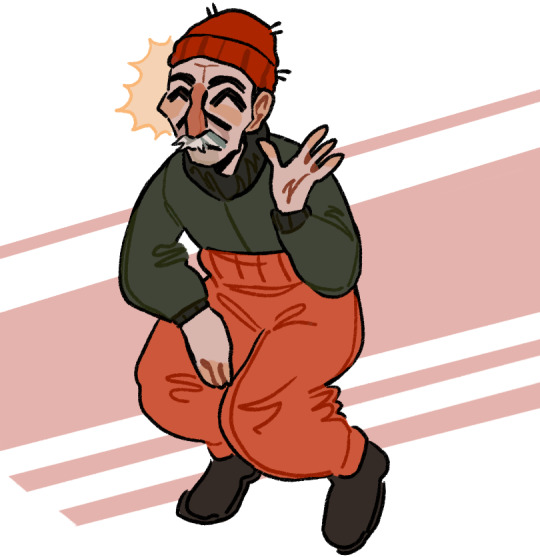
easygoing fellow
#disco elysium#easy leo#hes such an enigmatic character me What is his role in things. hes known the claires since childhood#''mrevrart has said many times im irreplaceable.'' etc. idk i just think hes neat#my art#leonard bellec#<- literally noone calls him that but it stays
373 notes
·
View notes
Text
𝕮𝖍𝖆𝖗𝖆𝖈𝖙𝖊𝖗 𝕾𝖙𝖚𝖉𝖞 : ᴛɪᴍᴏᴛʜᴇᴇ ᴄʜᴀʟᴀᴍᴇᴛ

Todays celebrity character study is on the actor Timothee Chalamet and the characters he plays in film, this breakdown would be done with the asteroid actor in its persona chart, so actor persona chart to say the least.
I’m not taking requests for yourself so please don’t send them in or your charts asking me to interpret them. You can send different actors tho so we can see if it applies to them. Also don’t repost my work.

Mercury (How does he talk in his movies): He has the range of talking formally, in a lighthearted way but still with that serious edge, also has sarcastic undertones but with a burst of energy, he talks in his movies like he’s on the slow steady verge of spilling out what he truly feels in terms of anger or sadness. So in all, he talks in a straightforward way in a casual tone but once in contact with any emotional situation, he starts to have a steady climb like a volcano before exploding with emotions. (Mercury in Capricorn, in the 2nd house)
Aquarius Sun: From my observations, I’ve noticed another character Timothee tends to act in his movies are the rebel types, but not the rebels that are fighting for a cause or carry mars influence, but the type that embody the scrub energy, the odd, weird characters that give off the vibe that they indulge in recreational drugs and have a lack of grounding, more on the stoner intellectual path and on the unconventional side that bring light on the overlooked part of life, a delinquent to say the least.
Aquarius Uranus conjunct Capricorn Neptune further shows the point of his character's tendencies to indulge in drugs and many other forms of escapism, not to mention, petty crimes to get that high for drugs or money to buy drugs or share it.
Capricorn Neptune sextile Scorpio Ascendant: This is another highlight to showcase his characters exhibiting the chase and correlation to drugs and taboo subjects for the viewers to see. There’s a constant need for the characters he plays to indulge in forms of escapism and various highs that it’s obvious for the other characters in the movies to see and be affected by it.
Aquarius Uranus conjunct Aquarius Sun magnifies this radical, unconventional act he has going on, odd characters of peculiarity shine through here not to mention he acts the roles of young (Sun) misunderstood but quirky characters (Uranus).
3rd house: He also tends to act in movies that he’s the older sibling like in interstellar, beautiful boy and one and two, these are only a few to mention. He acts in movies that involve school, like being in high school or college or that involves a group of friends
Ascendant in Scorpio showcases his vibe in his movies as being sad, troubled or dealing with some emotional issues or engaging in taboo things, or being a person who is “bad” in terms of the actions they take. They can be broody or enigmatic or mysterious or angsty.
Pisces Venus (How does he act in romance films): From what I’ve noticed, he often plays the role of a lover who loves with all his heart in a movie, often the romance is complicated, he’s usually starring in movies in which his character is in love with a very close friend that borders on family, love that hurts or isn’t built to last or on some idealistic trip in which he believes true love would prevail. He embodies the lovelorn character who never truly gets his happy ending. This may be due to the fact that Saturn conjuncts his Venus so there would always be restrictions or some blockage there, it might also show of his love being directed at older men/more mature older characters like in the movie Call me by your name and Miss Stevens but doomed to fail because of his character’s idealistic nature.
Capricorn Jupiter in the second house: I have noticed that Timothee also tends to play characters in historical periods like The King and Little women, this is because of the second house being known for the past (history) and with the planet Jupiter being known for philosophy it breeds the roles he plays, a serious character of power and authority in historical worlds like King Henry (Capricorn).
Saturn sextile Moon: He tends to act in roles where father figures or important male figures impact the life of his character or affect him emotionally, be it with pushing his characters to the edge to grow or with some sort of awakening.
Moon trines Mercury: Timothee does an excellent job in being able to channel the emotion his characters feel into words for the audience to grasp and understand. There is a huge emotional impact there.
9th house in Cancer: The characters he acts tend to be in foreign countries that pay homage to a sense of home or where family dwells.
Moon in 6th: With his moon in this house, his emotions show on his physical body with ease, from eye contacts, hand movements and more. He does a good job as an actor of doing this, with a Taurus moon, it brings a more down to earth feel, as you see it so it is, with a more connected energy to the viewers and sensual too.
Taurus Moon sextile Pisces Venus: When it comes to the romantic roles he plays or when romance is involved in his characters, it dominates them, they aren’t afraid to show their emotions in love and express it openly to their object of affection when the time is right.
Asteroid Actor conjunct Mars: This showcases the passion and dedication that Timothee has for his roles and wouldn’t accept anything less than. He’s passionate, zestful and takes his work seriously and this can be seen by all who work with him and more.
Sagittarius Pluto in the 1st house and sextile Uranus Sun: The roles he tends to play for the world to see are roles that can get pretty dark, that have nuanced themes and are ever changing, he’s like a Jack of all trades and doesn’t shy away from different roles to play, from lovelorn teenagers, to royals planning war, to drug addicted young adults and more, he doesn’t stay stagnant especially in his performances.

© 2023 intuitive-bbloom
#astrology#spirituality#astro posts#astro placements#astro observations#astro community#astrotips#astro notes#astrology observations#birth chart#persona chart#actor#hollywood#asteroid#asteroid actor#actor asteroid#astroloji#spiritualconnection#spiritual community#pac#tarot#intuitive#sun aspects#venus aspects#mars aspects#fame astrology#timothee aesthetic#timothee chalamet
86 notes
·
View notes
Text
Wonka
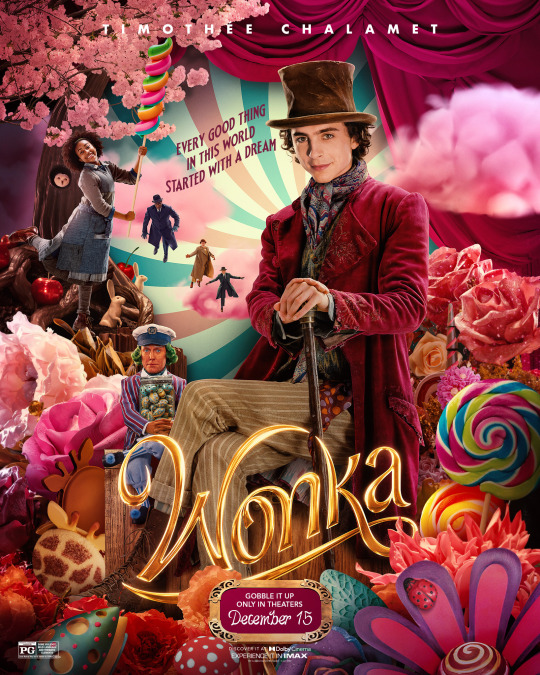
Cynicism: a belief that ideas are motivated purely by self-interest; this was my thought process going to the origin story of Willy Wonka. I have more than my fair share of soulless cash grab backstories long before starting my career as a film critic, so I came in to this with a heavy amount of skepticism.
After seeing the first trailer I groaned in a manner similar to an allergic reaction, I came into this movie prepared to be underwhelmed. Funny thing about expectations, sometimes they surprise you.
Wonka is the origin story of the future enigmatic candy mogul, Willy Wonka; he travels to the legendary Gourmet Gallery with only is suitcase and his dreams of making the world’s greatest chocolate in his very own shop.
This movie was a much needed shot of serotonin, and I don’t use that statement lightly.
I guess I should get the negatives out of the way first, because they were few but absolutely need to be pointed out.
I can’t stand the “white savior” trope, and there is a subplot where it’s used and I could have done without it.
Timothee’ Chalamet, is an amazing actor as the title character, but he’s a milquetoast singer. With the exception of “Pure Imagination” I was not impressed by the songs that he led.
His more emotional scenes felt disingenuous at times, the performance while trying to combine the energy of Johnny Depp and the late great Gene Wilder, leaned more towards the former which was a disservice to the character.
All that aside, everyone in this cast gave entertaining performances regardless of my complaints.

Chalamet’s Wonka performance while somewhat derivative was overall delightful, adding a level of charm and whimsy that the character is known for throughout every incarnation.

Hugh Grant brought his dry salty wit as Lofty the Oompah Loompah.
The trio of Patterson Joseph, Matt Lucas and Matthew Bayton were hilarious as the bumbling trio of antagonists Slugworth, Prodnose, and Ficklegruber respectively.

Callah Lane, was delightful in role as the precocious Noodle.

Olivia Colman and Tom Davis as Mrs. Scrubbit and Mr. Bleecher reminded me of characters from Annie and Les Miserables which is not a negative, but it definitely left an impression.
Keegan Michael Key brought his comedic charm and timing to the role of the chief of police. Some of the gags involving him could have been disastrous, but I was pleasantly surprised by how tasteful they were.
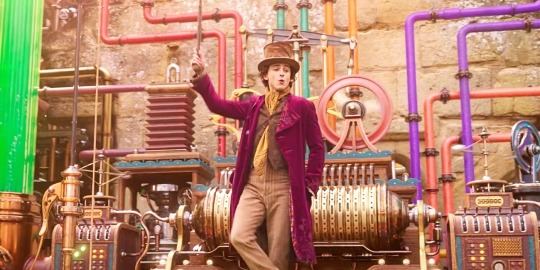
The visuals were as colorful as the sweets from Wonka’s factory, the settings were magnificent In their diversity, Director Paul King has an amazing eye for mood and setting.
The music composed by Joby Talbot and Neil Hannon, was a spectrum of emotion. The songs were all toe tappers, and I highly recommend copping the OST.
And the choreography is just as solid, sadly I could not find the credits for it as of this writing.
Most importantly Willy Wonka’s mystique is left fully in tact. Paul King and co-writer Simon Faranby, understood what a lot of prequel writers don’t, not every question needs an answer. Willy Wonka just is, and I love that they understand that.
I couldn’t stop smiling as the film continued, it’s warm cup of hot cocoa on a winter’s day and I highly recommend checking it out this holiday season.

Wonka gets a very solid 4 out of 5.
#movie review#hollywood#wonka 2023#wonka#willy wonka#timothée chalamet#hugh grant#oompa loompa#chocolate factory#imax films
7 notes
·
View notes
Text
Alsold and Umuka
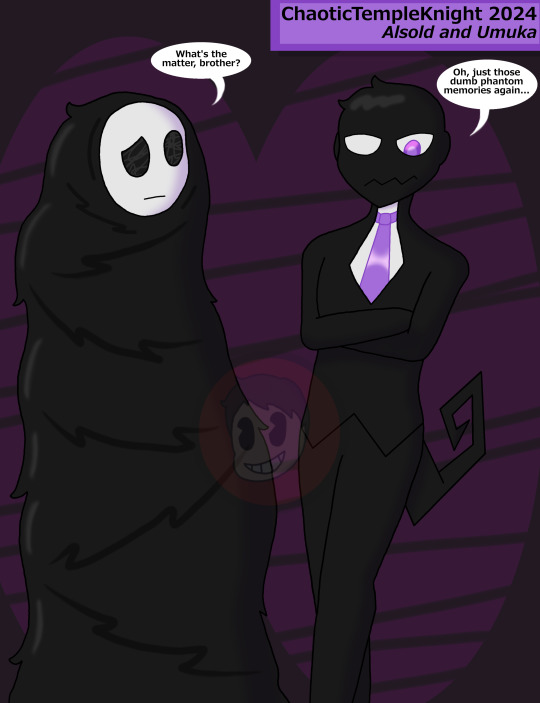
Relevant posts: Will, Bethony, Shadow, Richter
Master Post
- - - - -
- - What are Emanations? - -
Life that goes beyond the boundary of the corporeal is strange. Life can exist anywhere and anyhow as long as Pneuma is present. In rare instances, life derivative of life will pop up. Emanations are a type of life similar to ghosts, yet vastly different. These are entities that are derived from another individual, unlike ghosts which are either wayward spirits or embodiments of emotion. Emanations end up having their own unique personality and form. Why is easy to pinpoint, but the how has yet to be fully understood by man as a whole.
Emanations can be created by accident or on purpose... or sometimes both. When purposely created, they tend to serve the role of familiars, servants, or protectors. Emanations created by accident usually do their own thing and are the result of a mentally unstable individual. The former have less autonomy while the latter turn into free spirits that are hard to control. Accidental emanations also cause the most trouble the majority of the time. They also tend to stick to Hell, The Unlight, of the Ghost Realm.
- - Who are Alsold and Umuka? - -
Umuka was an emanation of William (ULTRAMagic Shadow) that popped during the Bethony Briggs incident. Not too long before Ms. Briggs was released, Will found himself followed by a shadowy entity that assisted him with his problems from the shadows. The two became good friends, but Will did not find out who Umuka was for some time. Alsold (also known as "Spoopy") is a bit stranger. He also came from Will... but it's unclear when and why as this happened long after the Bethony Briggs incident. Will is mentally unstable to a degree, but even those close to him are unsure why Alsold came into existence.
Umuka is charismatic, collected, and perceptive. He is professional and seeks to get his work done. Ability wise, he excels at traveling through darkness and can enter the enigmatic realm known as The Dark Void. Alsold on the other hand is goofy, friendly, and scatterbrained. He loves having fun and hates work... Despite Alsold seeing Umuka as his brother, there is a bit of friction between them. Spoopy's main ability is shape shifting and he can enter The Dark Void with Umuka's help.
- - What are these two up to? - -
Alsold and Umuka were noticed by the ULTRAMagic Guild and were welcomed as honorary members (given their connection to Shadow). These two are often sent on missions to collect knowledge and resources from tricky to maneuver realms like The Ghost Realm and The Dark Void. Such expeditions are greatly appreciated by their superiors. Alsold has also insisted on keeping an eye on Will and his guild squad. Umuka is okay with this as one of Will's squad members, Richter, concerns him. The two emanations will often accompany the squad on missions, providing assistance wherever they can. Artillery and Hoplite also appreciate the company.
- - - - -
Further reading:
- - - - -
So who is Umuka exactly? Originally he was an auxiliary character in GTALT (Glitchtale Alternate) and did not really have that big of a role all things considered. Also don't go back and read GTALT, it's awful... I'm also aware of the controversy surrounding Camila Cuevas, another reason why it's discontinued. Spoopy on the other hand has been floating around my projects, with me being unsure what to do with him. After Umuka got a redesign, I decided why not pair the two together as brothers and give them their own story? Plus I can explore more of the Cosmos in UMAE.
Umuka's name is Akumu backwards, but it's original enough to a point where I can use it for this new incarnation of him. Will Orion (properly first appearing in GTALT) make it back into canon? Yes, absolutely... I just need a good time to introduce him. And what of my interpretation of Jevil (Also in GTALT)? I've been thinking about that, making a character using the personality archetype in an original shell... I'm working on it.
#chaotictempleknight#ultramagic alternate#fantasy#sciencefiction#sciencefictionfantasy#art#lore#lore post#ghost oc#oc lore#original character#character profile#character lore#character art#male character#unique entity#unique#abstract#abstract character#black#white#purple#purple eyes#black and white#male
3 notes
·
View notes
Note
"Went to see a man about a king" haunts me more than any other line in that book. What is she planning

All images have alt text
I HAVE NO IDEA.
The first time I read the Harrow the Ninth I was balls to the wall obsessed with Gideon, so I skimmed right over this line. Now, though? It haunts me too.
Quick recap on the context for those following along at home: this is the last line of the Epiparados of Harrow the Ninth. Ianthe and Harrow are on the Erabos, and it has been two days since the final chapter of Gideon the Ninth. The kind of personality that Ianthe is being said to have is the kind of personality that can 'put their hands back on the reins after they've been taken off', which I take to mean the sort of personality that can recover and bounce back when one's plans are seriously derailed.
So what are you planning, Miss Yanthe? Let's break it down.
Okay. I don't have any solid theories yet, but there are a limited number of men she could be going to see at this point in the timeline. The options seem to me to be 1) John 2) Admiral Sarpedon 3) An as-yet unintroduced character.
As to what she's seeing him about, well....
The formulation of the line implies that it's clandestine, whatever it is. The lead-in, about being able to roll with punches and take control back, implies that whatever sneaky thing she's doing isn't a new plan so much as an adjustment to a prior plan that has gone awry. This was the most enigmatic part of the statement until As Yet Unsent dropped and clued us in that the Tridentarii have been studying large-scale politics as well as large-scale energy transfer.
As for the queen, the main candidates to my mind are 1) Coronabeth 2) Ianthe herself 3) Harrow 4) Ianthe's mother 5) An as-yet unintroduced character.
Looking at the options laid out like this, my money is on the man being Admiral Sarpedon and the queen being Coronabeth. Hear me out.
First of all, the Admiral has a name from the Iliad, but has only had a brief speaking role. He is actually the only named character with a speaking role who has not had an effect on the plot. That's suspicious. Even more suspicious that Sarpedon in the Iliad is known for stressing the importance of a king leading battles from the front, to keep the respect of his people. You may already have noticed that Admiral Sarpedon's one speaking role is, true to theme, to object to John leaving the frontlines to live on the Mithraeum. Mercy pulling John away from his Empire may have caused more trouble than we know. Secondly, to tie Sarpedon back to Ianthe and her queen, I strongly suspect that Sarpedon is Judith's father. If I'm right about that, Ianthe would have both a personal connection to him and inside information about his daughter's fate to leverage.
I don't think I need to explain Corona being the queen, the plan will explain that.
So if Sarpedon is the man and Corona is the queen, what was the plan Ianthe wanted to see him about? This is the answer I think we get in As Yet Unsent:
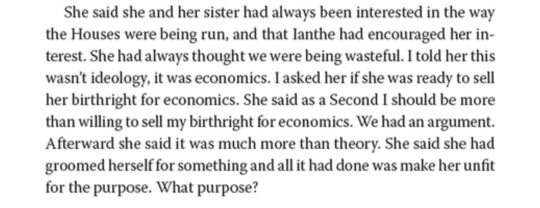
Just like Ianthe must have noticed that the energy exchange of the Nine Houses doesn't add up, Corona has noticed that their economic structure is unstable and unsustainable. Ianthe has been trying to reverse engineer the Resurrection and by extention discover the power that made a man into a god. Corona has been unsatisfied with the leadership of the Nine Houses, has a detailed plan for how to improve their policies, and has been grooming herself for a position for which she now feels unfit. She asks Judith to metaphorically bind her down, or who knows what throne she will mount.
I think the plan that was derailed initially had the end goal of a change in leadership for the Nine Houses, and I think Corona was, if necessary, meant to become the new face of God. She may not have been born a necromancer, but I'd wager neither was John.
So I think when Ianthe went to ask a man about a queen, she probably asked Sarpedon to help her find Corona and Judith. Though there are enough unknowns about the Tridentarii's plan and Sarpedon in general that I doubt that's the full scope of it. It does seem to me like the loyalty of the Admiral commanding the Seat of the Emperor may well be important in any coming power struggle.
#the locked tomb#ianthe tridentarius#coronabeth tridentarius#admiral sarpedon#tlt meta#harrow the ninth#htn spoilers#as yet unsent#thanks for this question it was a very interesting puzzle
285 notes
·
View notes
Text
Ethics and morality... and how they're not the same...
Weird title, and I don't even know if I'll properly approach this one with all the topics I wish to this discuss in today's The Devil Judge essay, because a lot of things peaked my interest, I was debating on doing a separate post for each subject, but I'll do them all in here:
Starting simple
I know we're only 4 episodes in, but I want to break down the things that I often look for in a new show:
Cinematography
Soundtrack
Character building
Plot devices
Social commentary (sometimes)
Of course, these are things most people would consider basics, but I find that a lot of TV shows don't have enough balance in them. Also, cinematography and soundtrack are pretty up there for me because when a plot gets slow, or something like that, I stay for those two (biggest example: King Eternal Monarch).
The soundtrack in The Devil Judge is amazing and the cinematography can be a character of its own. They really get me hooked and are used as tools to properly tell a story. And I'll get into that further down this post.
The onlooker will never understand the actor
Experience is your best friend not only applies to job hunting, but it's true in the real world too. You can't truly weigh in on something unless you've experienced it yourself, you can give it your judgment and everything, but when bad things happen to someone, you'll never truly understand their pain. Am I bringing up because of the difference of mind in Judge Kang and Judge Kim's opinions? On how the public treated the minister's son? No. I'm talking about a very specific scene, where the cinematography told me to think that way and not the dialogue (it's that easy for my mind to be swayed). In episode 3, when the rich are about to dine right after the foundation's commercial for a better future, we see this aerial shot:
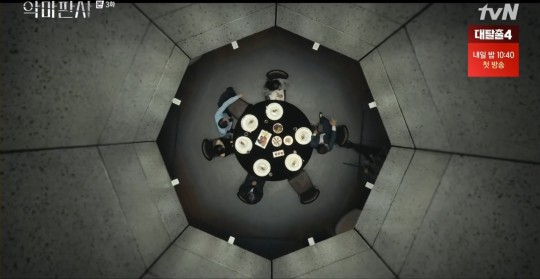
What's interesting about this? The seclusion and the enclosed feeling it conveys as a counterpart to the poverty shots we were just shown. Yet, these are the people making ads for a better future, what do they know?
They live comfortably behind concrete walls with no windows to see what goes on apart from the bubble they live in. This idea is further enforced at the party in episode 4, where they're not even a part of the donations, and watch and mock from afar as spectators. Yet, these people call the shots. They even call it commenting, as if they were watching the pain of others on TV.
The intriguing personality and the duality it encites
Now, this was a costume and wardrobe decision, but it was also very well thought of:
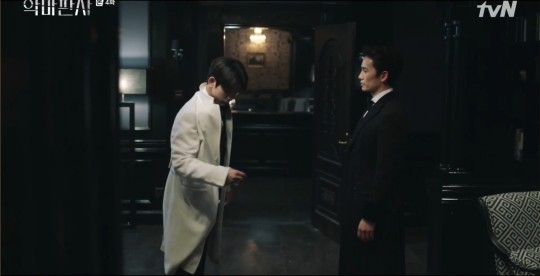
Judge Kim wears white and Judge Kang wears black. One is morally perceived by viewers of the show as morally good and the other is perceived as morally dubious at best. However, besides the costume and wardrobe thought put into this, we also have to think about the delivery of this scene and how it may further affect my detailing of this section. Judge Kang brings down the coats, and hangs over the coat to Judge Kim, he's the one who is making that annotation: You're pure, I'm tainted. This can have one of two interpretations:
Either Judge Kang believes Judge Kim to be pure and innocent due to his status as a rookie in the field
Or he believes Judge Kim to be morally white and himself morally black as he's looking at his brother's face and not at Judge Kim's heart.
Because most of the back story we're unveiling is through Judge Kim's perception, there's also an inherit bias we're having as well, because in Judge Kim narrative, he believes he's doing what's right and believes Judge Kang to be evil. In being served information about Judge Kang through Judge Kim's eyes, our bias is inherently skewed.
Another thing is that, when they put on the coat, they're standing in front of the other, as if the producers of this series are telling us they're two sides of the same coin.
The duality is made in more deceitful ways, which include:
A difference of classes that implies one has suffered while the other has not.
A difference of experience that implies one is more tainted while the other is pure.
A difference of age that implies one is a sly fox while the other one is is bunny about to be eaten.
A difference of temper that makes one erratic and the other logical.
Power dynamics
This one, in this one I could make a whole thesis based on just a couple of scenes in the drama. And you know I have to mention it: director Jung being the puppeteer.
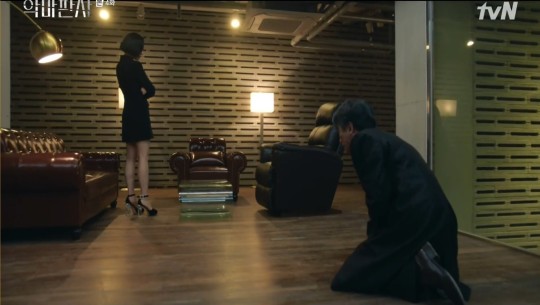
It may not be as unexpected at first, nevertheless it brings forward a lot of things I've wished to touch upon for quite some time now. A woman being a puppeteer of an old man in the portrayed dystopia that The Devil Judge is painting makes much more sense than more common demonstrations of these dynamics where it's either a:
A man of power being controlled by a bigger man of power.
A man of power being controlled by a seemingly man of a lower status.
A woman being controlled by a man of power.
Although, there's nothing wrong with those power dynamics, and if they were to be used, a message could also be conveyed, this one in particular works as a megaphone.
A subversion of power in such a way can be interpreted as a true indication of the weak overcoming the powerful. Why? It is not that woman are naturally weaker than men, but that in society, patriarchy has been a big factor in taking voice away from women in order to give it to men.
In order for Director Jung to achieve her purposes, it's smarter for her to do it under the pretense that an old rich man in power is the one calling the shots.
This is better exemplified by her stance when the old man tries to excuse his behavior, and what her moral compass is. I'm not saying I agree with her unethical conduct, but that her morality is directly impacted by the perception of the public of her as a weak woman:
Just because a dog bites a human does the person get dirty?
This is telling on how she perceives the actions of the old man in gropping the waitress. She didn't do anything wrong, even if you touched her, you are the dirty one.
While she's evil, it's a refreshing and deep evil.
The public's opinion and how there's actually logic in the show's portrayal
The public opinion can make or break a person, even if it's not on a public trial like this. While "cancel culture" barely works in today's society, a person's reputation is forever tainted. The show does tell that, but it also exhibits the scary downside of it, by showing how easily it was to make people accept flaggelation as a fitting punishment.
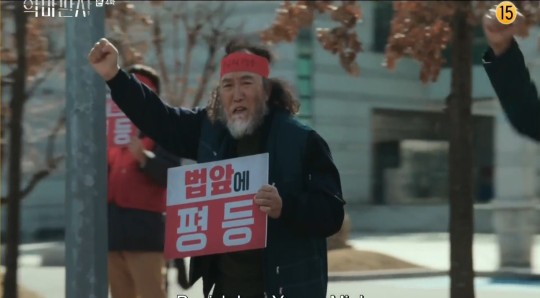
There are many experiments that have tried to test the effect of societal pressure on an individual's decision and the effect of the authority's enforcement of power in the outcome of these decisions. Furthermore, theories based on analysis of human behavior not necessarily relying on experiments can also help break this down. What do I mean? Here's a small attempt at explaining:
Milgram Experiment on Authority: which measured the individual willingness to carry out actions that go against their conscience due to an authority's approval.
Argument from Authority; The idea that people are more likely to use an authority's opinion on something as an argument for their reason. This is often seen in science, where trusted authorities have done the research and offer it to the public. In here, authority bias also plays a role, as we often believe, at first, that an authority must be right.
Moral disengagement: basically speaking, because this is evil or bad, I'm not part of it and I most probably am not actively participating in it. One may disengage by moral justification, which means that before engaging in something that has been previously perceived as immoral, I'm changing my stance on it based on what I tell myself to be logical arguments. This particular form of moral disengagement is very effective in changing the public opinion. I'll be touching on another form further down this post.
Other factors played a part, but these ones in particular came to mind when public flagelation as a form of corporeal punishment was wildly accepted. First, an authority is the one telling them it's correct, to go ahead. Secondly, another authority (the minister) had previously shown approval to such unusual punishment. Thirdly, they are not the ones to be engaging directly in the act, and even if they were, it would be acceptable because an authority has told them so. They may even believe the punishment to be a necessary evil for the greater good.
In fact, the minister's son was actually correct when pleading his case, they were accepting it because it wouldn't affect them directly.
Regarding the cinematographic descent of the public opinion regarding the situation can better be exemplified by the old man we've seen through the episodes.
Does suffering justify misdeeds?
Today I came along the difference between excuse and reason. You may give a reason for your behavior, but it doesn't excuse it.
Not because I've suffered through shit, means I have to make you suffer too.
I may explain myself, but it's on the other side to excuse me.
Why I hate the unreliable narrator and why I love it so much
This story has been told mostly through the eyes of Judge Kim and what he hears and sees regarding Judge Kang, if anything, the narrative is very close to that of the narrative we've seen in The Great Gatsby. An enigmatic man is being narrated to us from the eye of a man who hasn't known him for a long time.
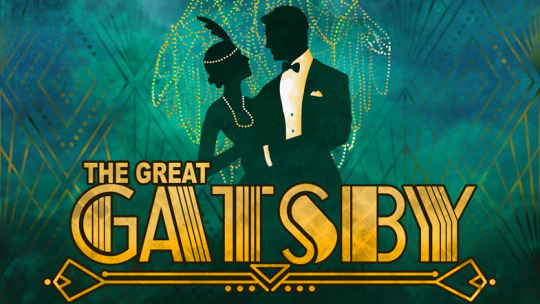
How is that an unreliable narrator? The narrator has their own set of bias and moral standards which function as lenses through which they see the world.
Another way of putting it would be the way teenage romances are often written in a first person narrative where either of the two teenagers is the narrator, so the author can sell to us something as simple as offering a pack of gum as the most romantic act on earth. We're perceiving interactions through rose tainted glasses.
In this case, we're seeing the interactions through Judge Kim's eyes who doesn't trust Judge Kang from the get go due to his own preset bias.
The narrative becomes even more unreliable as we're not exactly sure if what Judge Kang disclosed himself is a fact.
The reason why I love this narrative is because it leaves a lot of space to make simple plot twists to a narrative and make them seem grand, and can elongate a story without making it obvious.
The reason why I hate it is because sometimes, in tv shows mostly, we as viewers can see the other side of the story and grow increasingly frustrated with the main character's prejudice and misunderstandings (I'm looking at you my beloved Beyond Evil).
Also, because I have to wait for a long time before I actually have a clear picture of it.
#kdrama#kdramas#kdrama recommendations#analysis#rant#the devil judge#got7#park jinyoung#ji sung#kdrama meta#kdrama quotes#kdrama analysis#meta#the great gatsby#kim min jung#please dont let this flop
98 notes
·
View notes
Text
The maid and the Cat, Ren and Akira: some musings
What gloomy love brightened the half-lives of the Sohmas’ most Cursed ones?
I often wonder what the relationship between the former Cat and his attendant would have looked like, twisted and sad as it must have been. Precious little is shown about those two, and only through Kazuma’s pov. We know she took care of and pitied the Cat, to the point that she even slept with him and bore his child. This is not unlike Kureno’s relationship with Akito. She might have treated him with the same kindness and devotion, distant, perhaps harmful, yet selfless.
Selfless? I think another way to extrapolate on the story of Kazuma’s grandparents is with Ren and Akira’s relationship.
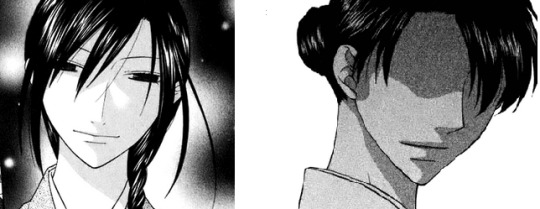
Many great meta writers have already pointed out that those who fill in the positions at the extremes of the Sohma hierarchy, the Cat and God, or in this case the Cat and the idolized, deified family head, are foils to each other and are the ones that are dehumanized and isolated the most.
But now I think that you can also compare the way the previous Cat and Akira both chose ("chose" being a relative term in the case of the Cat) a romantic partner.
(Akira wasn’t God, but as the family head, he was worshipped just like Akito. His sickness also contributed to making him stand apart. Not only was he kept inside the compound because of his frailty, the hold that death had on him blessed him with this ephemeral, divine aura. “Was it the sorrow that befell him at such a young age that gave him that otherworldly beauty?»)
Both Kazuma’s grandfather and Akito’s father were doomed, Akira to die an early death, Kazuma’s grandfather to live the life of a living dead. Both were buried alive in the Sohma estate, either at the outskirts or at the center of it.
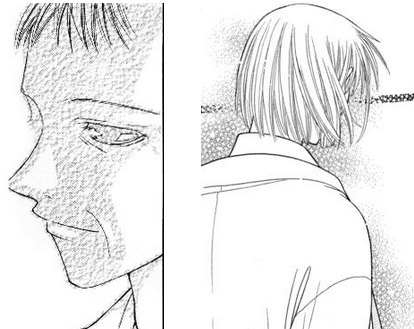
Both reached out to their progeny. (But Kazuma rejected the offered cake, and will endeavour to atone and honour his grandfather’s memory. Akito clung to every memento she had of her father and will need to learn to let go of him.)
And both the previous Cat and Akira found some measure of comfort in the affections and arms of their female caretakers, Sohma servants who saw their loneliness and expressed their compassion, though not in a particularly healthy way: Kazuma’s grandmother acting out of pity, Ren out of obsessive love.
It’s interesting to me how their respective position was reflected in their partners’ feelings : the imprisoned, despised Cat, Kazuma’s grandmother looked down on. The respected, otherworldly beautiful Akira was adored by Ren.
Kazuma sums up his grandparents’ relationship thusly:
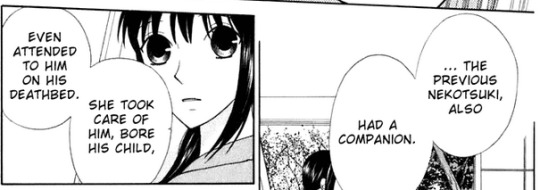
Those correspond to the main "duties" that a wife is traditionally supposed to provide her husband.
The day-to-day caring.
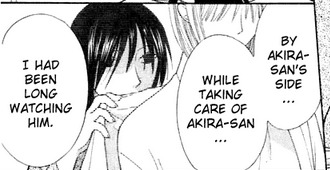
Childbearing.
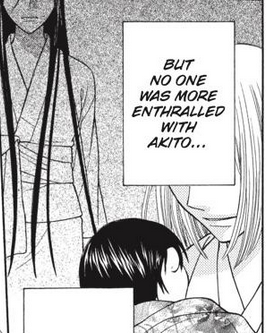
Attending their husband’s deathbed.
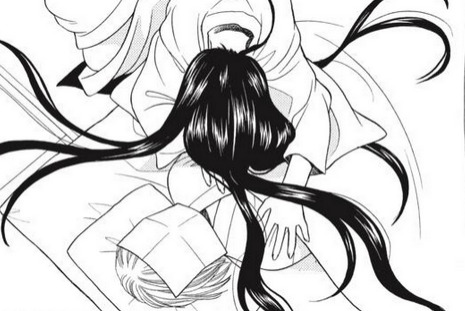
Obviously Ren wished she could have skipped the second one and be there for the last one. (I headcanon that she had prepared her last words years in advance, finding small pleasures and comfort, on the back of the wave of despair anticipating Akira’s death, in rehearsing the declarations of passionate love she would address to the dying man.)
The Cat’s companion attended her partner’s deathbed, seemingly very composed, even cold, as seen in Kazuma’s memories, while Ren, deprived of her husband’s last moments, that she felt were “stolen” from her by Akito (in reality by the maids :@), was mad with grief.
"The only one who can save him"
Those parallels make me wonder whether or not the Cat’s companion might not have developed a saviour complex, like Ren, both believing that they were the only one able to save this lonely, condemned person they were taking care of, and relishing it.
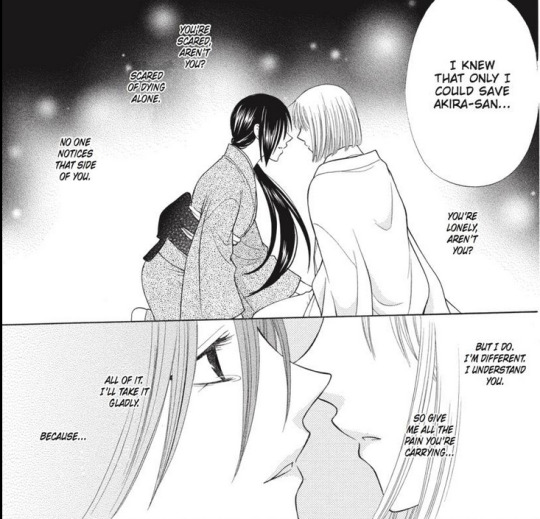
“I love you” vs "I pity you"
On Ren’s side though, it seems that she believes she truly saw Akira, as the person hiding behind that otherworldly aura, filled with sadness and fearful of death. Seeing that Akira agrees with her ("Ren noticed I was lonely"), fought against the Sohma leaders and regretted on his deathbed that he and Ren couldn’t reconcile, I believe this is not a delusion of hers. Her love was genuine and passionate, and she and Akira were happy. Unfortunately, that happiness didn’t survive her pregnancy, for she was also jealous and obsessed.
Kazuma supposes that his grandmother believed that she was doing something good. I wonder at her expression. It is shadowed, enigmatic. Is it a smirk or not, is she sad or not? i wonder whether she was selfless in her pity, like Kureno, or selfish like Kagura, perhaps feeling better by «sacrificing» herself in associating with the Cat for the sake of a miserable soul.
(Whatever you can say or imagine about her, Kazuma doesn’t seem to suffer from the stigma of being the Cat’s grandson, nor does he bear any trace of an abusive upbringing - in fact, he was among those doing the abusing - or even the echoes of the previous generation’s, so my guess is that she was an okay mother and grandmother... which would have made Kazuma’s disappointment and hurt at her words all the sharper... Like Tohru thinking of the zodiacs members she finds so kind and adorable secretly looking down on someone else she realizes she cares about more than she thought.)
There is no way to know how the Cat reacted to a pity-love. But considering Kureno and Akito’s relationship, this might also have been but a superficial balm, and potentially just as hurtful. Then it depends on the interpretation. Kureno’s pity cocooned Akito and kept her from moving forward, but the Cat was condemned anyway to an eternity of imprisonment. Moving forward was forbidden to him. And if his self-worth was already completely destroyed as his role and his treatment are meant to do, he might have just felt grateful towards the attendant. There’s no way to say for sure whether he would have been hurt or not by the truth, and I don’t know which option is the saddest!
... but I know what could be sadder. Because is the maid entirely to blame? We know that in Fruits Basket, love requires a measure of selfishness. The one cursed with the Cat has no self, no existence, no wants and no future, and they accept this fate. They believe they deserve it. (Which is why the Cat's Room doesn't need bars in the manga, nor locks. Rin was under lock and keys because either Akito didn't completely trust her to keep her word or she didn't want someone to discover her.)
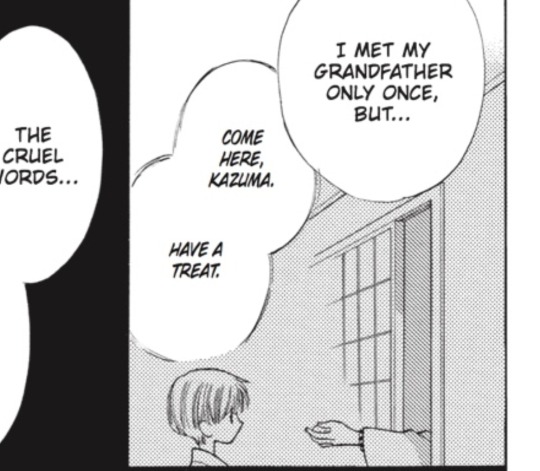
It would be very difficult for someone to fall in love with a person who has renounced to everything, perhaps including love. Because who's to say that the Cat loved the maid too?
Recognition vs indifference
How depressingly fitting that we don't even learn the Cat's name, while Akira’s is remembered by all and echoes back and forth in the later part of the story.
Ren marrying the Sohma family head was such a big political deal it provoked a family schism. The Cat’s story with the maid gets completely ignored. It is probably known, just not "officially recognized", says Kazuma. Like everything related to the Cat, it was relegated to the back of the minds, in the dusty closet of the things that are uncomfortable to think about but that you tolerate if it doesn’t upend your little world-view. Ugh, some maid is being inappropriate with that monster! Well, as long as she doesn’t free the loathsome creature, who cares. (And she wouldn’t, because she’s no Tohru.)
In contrast, the maids of the main family thought that Ren was stealing Akira from their grasp. Ren didn’t seem to care for the family, and in a way, her love allowed Akira to also escape from them, "snatched away" by "that woman”, for the old attendant. Unlike the Cat’s attendant, Ren felt like a threat to the Sohma strict hierarchical system. (Fortunately, God will be born to bring back the right order of things, phew! Certainly she he will accomplish what Akira-san was momentarily too misguided to do and rid us of that woman!)
Inheritance.
Both women's profession of their true feelings deeply marked their progeny and the way they view relationship, whether personal or not, romantic or filial.
While her mother affirmed that "a woman only needs one man", Akito leaned on the love of the zodiacs ; Kazuma viewed and loved Kyo as a human and dreaded that his son would find himself in the same situation as his grandfather but also with the same kind of companionship. (His reaction to Kagura speaks of a long-held anxiety). But Ren's hatred for Akito coloured the way Akito interpreted her words, while Kazuma’s grandmother’s declaration shook Kazuma, his personal relationship with his grandmother notwithstanding.
This comparison isn't about good or evil, neither to judge those characters. Furuba isn’t about that. Obviously, they are not blameless. But it is very difficult to say whether or not Kazuma’s grandmother was wrong to act out of pity if it provided a bit of comfort to a prisoner. And is it surprising that Ren developed this saviour’s complex when it seems she was the only one willing to breach Akira’s isolation bubble?
Anyway, Takaya-sensei is really good at making foils. Either because she does it on purpose or because her characters are so deeply intertwined with the themes of the series the parallels appear on their own. But in this case, I don’t think it’s for nothing that the chapters recounting Ren and the Cat’s attendant stories follow each other (chapters 114 and 115).
Of course, this meta is less an analysis and more suppositions and conjectures (frankly, I wonder if I might not as well have written a fanfic). From the little we see, the Cat’s companion and Ren work as distorted yin-yang mirrors, their differences highlighting the similarities of their situations, from the ugly effects of the inner workings of the Sohma cult to the messed up inner workings of the heart. Genuine but obsessed, jealous love... Pity, perhaps self-serving, in the guise of martyred love.... One thing I can say for sure is that these two both gave me chills in their own way.
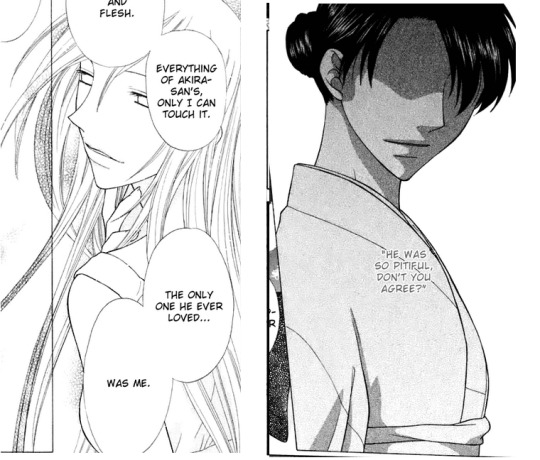
#ren sohma#cat's companion#the cat spirit#zodiacs#fruits basket#fruits basket manga#fruits basket season 3#fruits basket meta#love vs pity#meta#akito sohma#akira sohma#kazuma sohma
71 notes
·
View notes
Text
Retrospective Review: Skyfall (2012)
So after QoS was generally considered to be a letdown after the impressive success of Casino Royale, there was a bit of a course correction required. It wasn't as if QoS was a bomb. Both Casino Royale and QoS were the highest grossing Bond films till then. But critically they needed to course correct a bit. Skyfall came in with a lot of hype since it came on the 50th anniversary of Bond in films. Sam Mendes came in and knocked it out of the park in Skyfall. In my opinion, Skyfall is second only to Casino Royale in the ranking of Bond films.
What is interesting about Skyfall is that it feels like it takes a significant step away from the previous two films. It feels aesthetically different from the previous two films and Bond himself is reinvented as someone at a different point in his life. While Casino Royale and Quantum of Solace were films with Bond as a new 00 agent. In Skyfall, he is an older agent, considered to be past his prime. So it seems like there is a big time leap in his career. The film has a fantastic opening action sequence, going from car chase, to bike chase, to fight on a train. You really feel Bond being pushed to his limit in this sequence. Yet, there are still very lovely iconic touches like when Bond leaps from the tractor into the train, he checks his cufflinks. Its really a small thing but it lends a lot of Bond's character. Skyfall is probably one of the most known Bond songs and it really lends to the mood of the film to follow.
The film's biggest strengths lie in the film making and in the performances from the actors who are all excellent across the board. The film has makes some bold choices when it comes to plot by making MI6 fallible. M in this movie is not at her best. She makes mistakes and a security leak happens as a result and people die because of the mistakes she made. There is also a legitimate argument to be made that she did wrong the villain and does manipulate Bond. As a result, she becomes an even more interesting character. If there is a true Bond girl in this movie, it is Judi Dench because she is front and center in this movie and the plot really surrounds her. Its by far her more substantial role in the franchise and she really makes the most of it. Her relationship both with Silva and Bond is fascinating, with Silva having almost an Oedipal complex with her whereas there is a clear maternal connection with Bond. Its a very fitting swan song for her.
There are a couple of other Bond girls in the movie. Naomie Harris makes an excellent debut as Moneypenny. If I am correct, I don't think we even know she is Moneypenny until the very end of the movie. But she's pretty badass from the very beginning and she has a nice witty banter with Bond. There is a nice and friendly sexual tension between the two. Its definitely a different Moneypenny from the previous eras but she is a welcome presence. One performance that doesn't get enough credit is Berenice Marlohe as Severine. She is actually pretty fantastic in the movie in a fairly brief role. She is enigmatic and seductive and a deeply tragic figure but her scenes are ones that really stick with me. Definitely the scene in the Casino is excellent.
We also get the reintroduction of Q, played by Ben Whishaw and he's immediately winning. It makes a lot of sense for the modern technology driven Q to be a younger man and its a fun switch of the dynamics between Bond and Q, where previously Q was sort of a mentor figure for Bond, here Bond is the elder person who makes fun of Q's age. One other character who is a surprise is Ralph Fiennes as Mallory. When he is initially introduced, he feels like a stereotypical government employee who is against Bond and M, but you slowly see that there is more to him than meets the eye and he's actually quite a badass himself and ends up being the new M by the end of the movie. Fiennes is great as he normally is. Albert Finney has a fun role in the last act and Rory Kinnear continues on as Tanner.
Javier Bardem's impact on this film is immense. What is interesting is that he doesn't appear until just a few minutes past the halfway mark of the movie. And even in the second half, he disappears for about 15-20 minutes after the hearing shootout. But his impact looms over the entire movie, even when he's not there. And that's a testament to his performance. He is brilliant in the role. He has an outstanding entry scene with a great monologue. You can just tell that Bardem is having a blast in this role. He manages to induce menace, rage, heartbreak, and madness. You genuinely feel some sympathy for his him because he isn't completely wrong. Its a performance that is truly right towards the very top of Bond villains and it elevates the movie a lot.
Daniel Craig is again fantastic here. He continues to give his all, both physically and emotionally in the role. The scenes between him and Bardem on the Island are some of the best acted sequences in the movie. And again, the dynamic between M and Bond sells because of how well both Craig and Dench play off each other. There are little touches that Craig does that I love so much. I already mentioned the cufflinks scene in the opening action sequence. Then there is a fight scene in a Casino where he and a goon fall into a pit and he spots a Komodo dragon and he is startled and points at it even, even when he is being picked up by the thug. Also, when he gets pissed off when he sees the DB5 get blown up in the climax. It doesn't sound like much, but it genuinely adds a lot to the character when you see it. He has good chemistry with all the cast and you even buy him when you see him struggling physically post the injury inflicted in the opening sequence. Its a performances where he delivers the humor, action, drama, emotion etc... and he does it all brilliantly.
As I mentioned earlier, the film making is terrific. Aesthetically, this film stands out and his beautiful to look at. Its no surprise that Roger Deakins is the cinematographer. There are just some gorgeous sequences throughout the movie, be it the fight in the empty office in Shanghai, the sequence in the Casino, the empty old house in the middle of nowhere, or the moors of Scotland in the climax. There is just a wonderful use of light to make every frame stand out. Sam Mendes also keeps the pacing tight. This is almost as long as Casino Royale, and just like that film, you don't feel the time. The only reason I rank this below Casino Royale is that the story telling isn't as tight as it could have been. For example, Silva's entire plan is really implausible when you think about it. No amount of preplanning would have led to everything happening exactly as he planned it because it requires a lot of random actions from people which he could definitely not predict. Then there is the fact that M endangers the ministers and everyone at the hearing despite knowing there is an eminent threat. Also, while the climax is spectacular and I get that Bond wanted to get Silva out of his comfort zone, but I still don't see how isolating himself in the middle of nowhere, with just M for backup against Silva and his entire army was a wise idea. Also, the film sets up the interesting notion that Bond is not at his best physically, but it sort of abandons the idea towards the end with Bond basically taking out Silva's whole army on his own. So there are some loose ends to the storytelling. But its easy to overlook them. The film also makes the brave choice to have Silva actually win since M dies in the end. So it is a bittersweet ending in a way. But its all done in a very satisfying manner.
Overall, its an excellent movie. Definitely top tier Bond and a very fitting movie for the 50th anniversary for Bond. A 9/10.
#skyfall#sam mendes#rory kinnear#tanner#naomie harris#eve moneypenny#ben whishaw#Q#M#berenice marlohe#severine#javier bardem#raoul silva#ralph fiennes#gareth mallory#007#daniel craig#judi dench#roger deakins
22 notes
·
View notes
Text
🌕⏳ GUIDE TO ATEEZVERSE 🪐✨
Hongjoong
Hongjoong is somewhat an enigmatic character since in the diary entries he does not provide any concrete information about his background. The only thing we know is that his family is not by his side, either physically or emotionally: Hongjoong feels lonely.
He mentions that he lives alone, but then he meets ATEEZ and they start making music in their 'hideout'. This makes him feel happy and feels hopeful in achieving their dreams. ATEEZ now become his 'found family'.
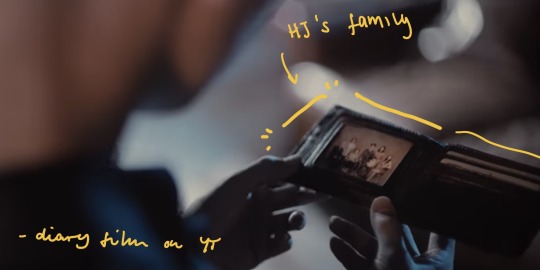
( Blue is for personal notes )
I think Hongjoong's loneliness plays a big role in the development of his character. His priority is to make ATEEZ success and keep them close to his side.
During summer there is a growing tension between members and a fight changes their dynamic. In addition, they are kicked out of their warehouse so now they decide to part ways and Hongjoong feels lonely again. That's when in dreams he begins to see 'the feedora man'.
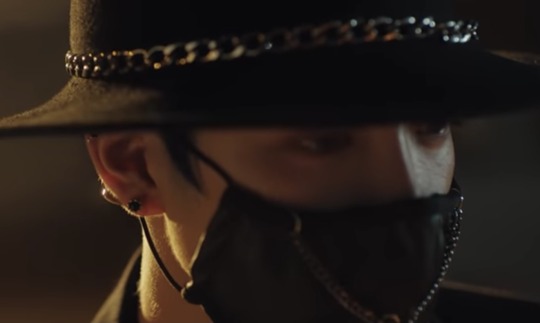

“You lost your dream not because of the tough reality, but because of you guys decided too (...), get reed of the idea that the world you see is everything. The world I am in, the world you are in, are all real (...), I want to tell you everything, but I don’t have much time right now” - Feedora man to Hongjoong
Just a curious detail, HJ is the only member in the group to have a conversation with ‘feedora man’.
This is the moment when Feedora Man gives HJ the cromer and tells him the tool connects worlds and that ‘the map’ is inside his heart and he should follow it.
This was one of the reasons why I stopped watching Black Pirates as the enemies for ATEEZ. If they were villains, why encourage HJ to get his members back? I think Black Pirates want this kind of alliance to work.
Now with the cromer in his hands, Hongjoong leads ATEEZ through dimensions.
At some point the ai guardians find them and take the cromer away from them. As soon as they lose the cromer they need to trace a plan to get it back so they can go back to their own dimension. They find allies along the way who help them find the guardian’s bunker where they keep the cromer.
This is a crucial moment for the storyline because in that same bunker they find the ‘Feedora Men’ now known as ‘Black Pirates’, trapped in what looks like a prision of glass. Again HJ has another conversation with his own Black Pirate, and is the first time he sees the other’s face without the mask.
I believe the following pic belongs to this moment

“Listen, we called you here. We are captured here, and somebody has to do our work. You may have noticed it. This world needs a change (...), I don’t have enough time to tell you the whole story. We are going to be seen by the guardians (...) do what I do” - Black Pirate HJ to normal HJ.
In that moment the Black Pirates put their hands on the glass for ATEEZ to copy and place their hands where theirs are. When they do it, suddenly ATEEZ are wearing the HALA HALA outfits imitating the Black Pirates.
I think both ATEEZ and Black Pirates fusion with each other. For me it’s like Black Pirates and ATEEZ share same body and aspirations, yet ATEEZ don’t know what happened and will take time to understand.
After this, Yeosang separates from the group and goes find the cromer. Everyone notices and get anxious until Yeosang finally gets back with the cromer in hand and immediatly tends it to Hongjoong. NOW, a guardian appears from behind and catches Yeosang threateaning to break his neck if they don’t hand him the cromer.
Hongjoong needs to take an important decision, and he chooses Yeosang’s life. He throws the cromer to the guardians but Yeosang catches it instead and runs away with it (I will explain this in Yeosang’s profile). The guardians seem confused and start following him, by the moment HJ tries to reach them, Yeosang already turned the Cromer and crashed it making him desappear in front of HJ and sending ATEEZ to their own dimension.
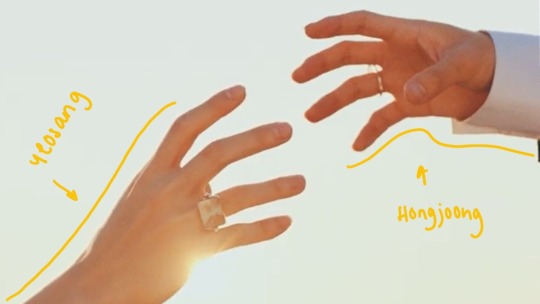
10 notes
·
View notes
Text
While we’re waiting, what’s next for...Carolyn?
From the BBCAmerica page on everybody’s favorite master spy, Carolyn Martens:
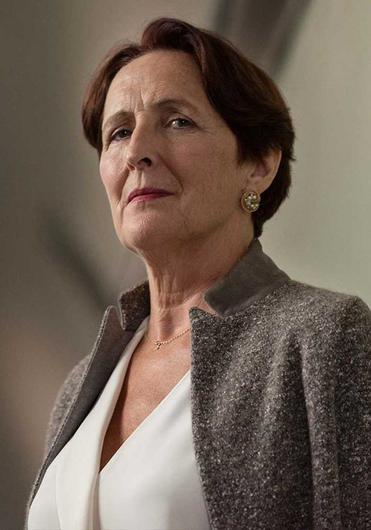
Charismatic, erudite, fiercely well read, and irreverent, Carolyn is a principled yet ruthless leader in her field. As a young agent on the ground in Moscow in the '80s, she cultivated one of MI6’s most valuable assets and has since saved the world at least three times. (This makes Carolyn sound like she’s on some Avengers: Infinity War level. Then again, this is Carolyn we’re talking about. She might be able to talk Thanos out of snapping half of life out of existence. Or at least inform him which half of it needs a permanent vacation).
Carolyn has formed intimate relationships with her foreign counterparts on more than one occasion — an occupational hazard. She’s divorced four times and her only child, Kenny, is living back at home, and working for her — she’s obsessed with her work. (This statement is no longer fully accurate. After Season 3, we learned Kenny was not Carolyn’s “only” child. Only the child she claimed, as her daughter Geraldine is a wonky carrot in Carolyn’s life and one she barely tolerates. As for all the intimate relationships with her foreign counterparts and the four ex’s, Carolyn gets the job done and if that includes sleeping around on the job, it gets results).
A literal and strategic woman, Carolyn is smart enough to know when someone has a specific talent, and is not shy about pointing out qualities, or perspectives other people have that she might lack. She saw Eve’s ability when everyone else dismissed her, and she admired and encouraged her and then hired her.
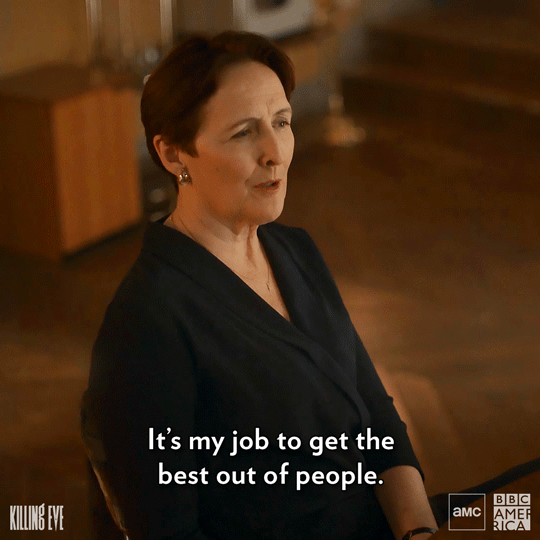
In Season 1, Carolyn set up a secret unit and put Eve in charge of it. She needed a group that could be invisible and work without the restraints of typical MI6 protocol — but is Carolyn more entwined with the Russians than she lets on? Whose side is she really on? And is Eve fooling herself that she’s the only one Carolyn has ever singled out for special treatment?
At the center of Killing Eve’s dark little heart is Carolyn. Without her there is no Villaneve. It was her machinations and manipulations that put them together and for reasons all her own she pulls them apart as her needs dictates. Carolyn is rarely surprised by what Eve does in her relentless pursuit of Villanelle. She gave Eve the job of finding the elusive assassin, but while she may not have known it would become a shared obsession between the two women, she certainly has found ways to use it in furtherance of her own hidden agenda.
Unlike the characters of Eve and Villanelle, Fiona Shaw had no template for the character of Carolyn Martens. She doesn’t exist in the original novellas by creator Luke Jennings. Shaw along with the KE writers, led by Phoebe Waller-Bridge built Martens from scratch and now she’s one of the most enigmatic personalities on television. Not quite a hero and not quite a villain, Carolyn is playing a game only she knows what the rules are.
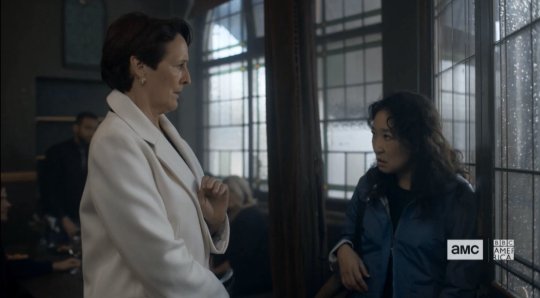
In an interview, Shaw explained how Carolyn shows up in a way far different from her previous roles. “It’s not like anything I’ve played. I normally play characters who express something people can’t express. Suddenly I’m not expressing anything at all. I find that really, really hard to do. I’ve enjoyed it tremendously because I know a lot more than I say. So I have to keep on saying things that don’t actually point you to the information. I thought, “How will they know what I know if I don’t tell them?” and, of course, the key is to just not tell them. I’ve begun to trust the dark web of Carolyn’s mind. I’ve enjoyed that experience very much, playing the non-information.”
How do you begin to play that?
“It’s not just a mannerism. It’s an actual choice of thinking. It’s the way in which she thinks. She knows something and she has to not say it. Oddly, I think that is true with people I’ve known who have been in slightly secretive jobs. I know one particular person who I based Carolyn on a bit on who often hesitates before they speak, as if they have to file a lot of information first before they answer your question. So you’re never having a true conversation with that person. I think Carolyn is like that. You’re always given as much as you need to know, but no more.”
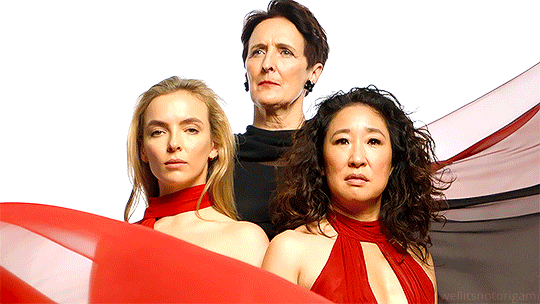
Going into Season 4, we’ve learned Carolyn isn’t as walled off from her emotions as she believed she was. Her demeanor toward Kenny seemed the same off the clock as on it: professional, curt, dismissive, and providing only as much info as necessary to get the job done.
Kenny’s death changed all that. The walls she had built between her work and her emotions began to crack and the arrival of Geraldine accelerated the process. Maybe the Carolyn Martens of the first two seasons is hands-on enough to put Konstantin on his knees and press a pistol against his skull while threatening to blow his brains out, but that was wildly out of character for the supremely assured spymaster.
But so was her executing Paul, her MI6 rival and declaring there was no point to try and take down The Twelve. Was she speaking as a defeated outsider weary of a pointless fool’s errand, or as the scheming insider who is part of the shadowy terror organization?
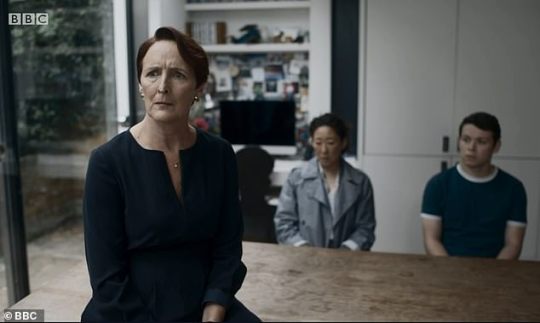
Then there’s the matter of Carolyn’s relationships with Konstantin, Villanelle and Eve. All three of them have seemingly been dismissed by her from her future concerns. Her friendship/alliance/affair with Konstantin is dead and buried. She has no use for Villanelle if she’s not using her skills to kill for MI6. If she buys Konstantin’s b.s. explanation that Kenny was a clumsy idiot who “fell” off a building (she doesn’t because she’s not stupid) and she’s not going to bother busting The Twelve, what use is there to have a busybody like Eve underfoot?
By circumstance or by plan, Carolyn will find some reason to trouble herself with Eve and Villanelle again. Konstantin is always skulking around and sniffing about, and it wouldn’t surprise me if he and her were running some scam as when they faked his death at the end of Season One (boy, they never did bother to explain the why and how of that, did they?).
Ranking only behind Villanelle and Eve as a complex and compelling character, even three seasons in, its hard to know whether Carolyn can be trusted to do anything that doesn’t serve an agenda only she is aware of. Going into Season 4, the fog of deceit, deception and deadly games of spycraft may part and we’ll find out whose side Mrs. Martens is really on.
Or not.
#Killing Eve#Carolyn Martens#mi6 spy chief#Eve Polastri#Kenny Stowton#Villanelle#konstantin vasiliev#killing eve analysis#ke_s4#choose a side
46 notes
·
View notes
Text
I Care A Lot, Malcolm & Marie, Capone, The Life Ahead and the News of the World: Everything I watched in February.

Newsflash ! The cinemas still aren’t open and I’m starting to lose hope in them ever opening. Despite the UK government drawing a step by step guide into lifting the UK out of lockdown (like its flat pack furniture and not a critical pandemic) with cinemas due to open in April, I wouldn’t hold my breath seeing as our own human biology and its resistance is the actual measure of when it is safe to go out and about, not what our government says. So until everyone is vaccinated and has sustained the first few months of vaccination symptom free, I’m having to sift through Netflix and Amazon for something to watch, like I’m looking through a charity shop sale; without much luck. Don’t get me wrong, I’m all for these streaming services, I (my dad) pay for them for Christ’s sakes and I know that one day I’ll be eating my words when I’m offered a Netflix deal that I (in a Vito Corleone voice) “cannot refuse”. However, unlike some of the creators on Netflix, I’ll make the most of this opportunity and be incredibly anal about what I want to make, even if it kills me.

I feel like so many people are given the license to make whatever they want for Netflix and then I look at the trophy wall of Emmys that HBO has garnered over the years and consider their quality writers and casts. I would say most recently, shows like The Crown, Sex Education, Top Boy and Bridgerton are Netflix’s exceptions currently, being both of quality and giving us something we actually want to watch. And guess what all these shows have in common?! Not only are all the casts largely British but all productions of these shows are British too. The British quality of TV programmes for streaming services in the US is a win win for all; Americans get to watch our good quality TV and we get Golden Globes. Most notably, The Crown did exceptionally (as it always does) at this year’s Golden Globes, further proving the show's excellence despite controversy. I thoroughly praise Netflix's resistance to label the show “fiction” and the lengths it took in making the show as authentically as possible, despite the criticism. The awards speak for themselves and the Crown has scooped up several this year so far.
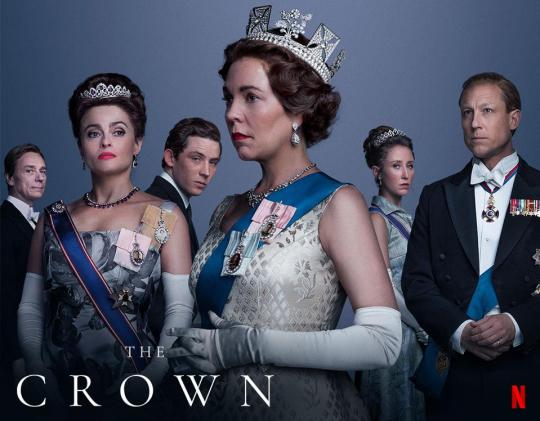
To conclude, I want the cinemas to open just as much as anyone, but I’m happy to comply with the stay-at-home-and-watch-Netflix-rule for now. For now...Here’s everything I watched this February.
Annihilation (2018) as seen on Netflix
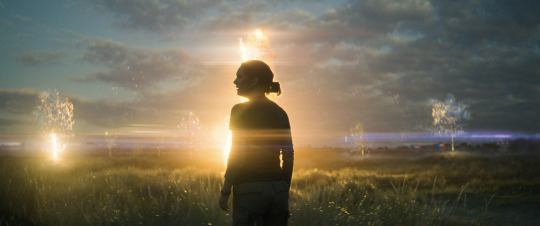
Netflix’s Annihilation starring Natalie Portman, Jennifer Jason Lee, Gina Rodriguez, Tessa Thompson and Oscar Issac was a multitude of things that were difficult to comprehend. This is not me saying this is a bad film, in fact its me saying the complete opposite as the complexity drew a tangible beauty to the film from beginning to end. I reeeaaalllyyy liked the beginning and how the first scene sucked you into the crazy and fanatical story that later unfolded. Natalie Portman as always was wonderful in this role, playing a biologist who enters another world in search of her husband, who’s gone missing on a similar expedition to hers. Like with most sci fi films, it was difficult to gather the meaning of such a film, however this lack of meaning didn’t draw away from the story or how it was portrayed, in slow and enigmatic shots that told the story with a natural pace. If you’ve seen / liked Ex Machina (2014), Annihilation has the same director and I would thoroughly recommend you watch this too as the way Alex Garland merges sci fi with horror is incredibly seamless.
Score: 10/10
Eastern Promises (2007) as seen on Amazon Prime

This film starring Naomi Watts, Viggo Mortensen and Vincent Cassel was incredibly dark and gritty. Even though I’m not Russian, I found Mortensen and Cassel’s Russian personas to be rather good for a Dane and a Frenchman. Their on screen chemistry was also really good and its make me wonder why I haven’t seen a film with these two in it before. The story follows Anna (Naomi Watts) a nurse and her hunt for the true identity and life of a baby that was born to a 14 year old girl. Nikolai and Kirill (Mortensen and Cassel) are Russian gangsters living in London and set about covering up this obscene scandal and getting rid of the product of it, a baby girl belonging to the condemned and now deceased child. It's a difficult plot to wrap your head around and like I said, it's incredibly dark. Actor and director David Cronenberg (A History of Violence 2005) directed this film and helped Viggo Mortensen with a nomination for Best Actor at the 2008 Academy Awards.
Score: 8/10
Fifty Shades of Grey (2015) as seen on Netflix

So remember how I said I was DESPERATE for films this month...I watched Fifty Shades of Grey with zero expectations and I can say definitively that it was worse than I thought. It's a true miracle that both Dakota Johnson and Jamie Dornan still have careers 6 years after such a film was released and I personally wouldn’t rush to cast either acting in my film after seeing this. Harsh, I know but reputation is everything and when you sign onto something that instead of highlighting your acting abilities, highlights your body parts, what am I supposed to think... I’m all for body confidence and what not, but I feel like most of this film sort of abuses sexuality and sexual expressions. The fact is, the BDSM part of this film wasn’t even that bad, it was the characters that pissed me off the most and their LACK of character in fact. They were orchestrated in such a flat way and the only time where either one of them found any character was through the sex itself and the discussion of it, especially Anastasia’s character. The most profound and irritating thing about this film is that Anastasia’s life seemed to only have meaning when she met the so called handsome, charming, wonderful, drop dead gorgeous Christian Grey. What does that teach us about women people? I’ve said it once, and I’ll say it again, sexualising women in film and media shouldn’t be the only reason for them to be there. And the entirety of Fifty Shades of Grey is built upon that fact. Even though the novel was written by a woman, it definitely missed the point in giving us a strong female character who could both be into sex and taken seriously at the same time. Seems like a really hard thing to do in cinema as filmmakers either go for the over-hyped sexualised prostitute, the caring mother or the nun. Like female professionals have never had sex in their lives… think again. I like to wonder what it would’ve been like had it been Ms Grey and Christian as her submissive. Not only would that mix up the character dynamic and go against gender confirmation, it’d actually be interesting. But maybe I should just write that story altogether...To conclude, the characters in this film were flat and the entirety of the film hyped up sex and the act of it way too much. It's like making a film about walking or breathing.
Score: 1/10
Malcolm & Marie (2021) as seen on Netflix
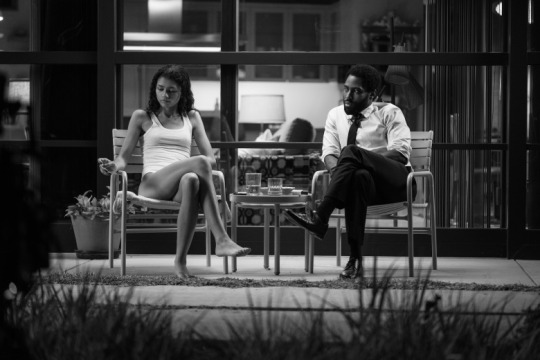
Malcolm & Marie received a lot of attention in the media and sadly not for the right reasons. In fact, what’s so childish about the backlash is that hardly any of it had to do with the filmmaking techniques Sam Levinson (Euphoria’s creator) used or the story he wrote. More of it had to do with Levinson’s controversial ideas about how the media likes to view and prod film like a goldfish in a bowl, acting ostentatiously towards the art and appearing woke as opposed to just seeing film for how it is. I gather many film critic’s egos were bruised when Levinson used the lead character, Malcolm (John David Washington) as a butcher to film critics. He says things like “I’m choosing to make a film that’s fundamentally political, but not everything I do is political because I’m Black” in reference to the ignorance of some film critics who stamp politics onto any black directed film, attempting to brand the films with their own understanding of the film as opposed to its real message and story. Malcolm spends the majority of the night loathing a fictional “white LA reporter” and betting on her exact words for his own film, about an African American woman trying to get off drugs. What he says is funny, so funny it's true. White reporters DO do this and instead of embracing Levinson’s satricalism, the real LA white reporters of our media got overly offended and used the “lack of story” card as a backdrop to fuel their distaste at being called out. Had they known Levinson’s intentions with this film, they wouldn’t have reviewed it all together as I’m sure Levinson knew what he was getting himself into when mentioning the annoying “white LA reporter” and making the stereotype central to the lead's frustrations towards the industry. Levinson also graciously mentions that even though Malcolm has such hatred towards the critics, he is their fuel and by making his so-called “art” he only joins them in the argument . Levinson made his bed when he made the film and I think he’s sleeping rather comfortably. No one even bothered to praise both Zendaya’s and Washington’s performances, which were phenomenal considering the circumstances and the added pressure of having to carry a whole story in one room using only each other to fulfil that story. The cinematography was ambitious and overall, it was a simple yet well executed story. What are y’all complaining about?
Let's put egos aside and focus on the actual film for once, rather than how its perceived the articulation of your opinions towards it.
Score: 10/10
Coming to America (1988) as seen on Amazon Prime
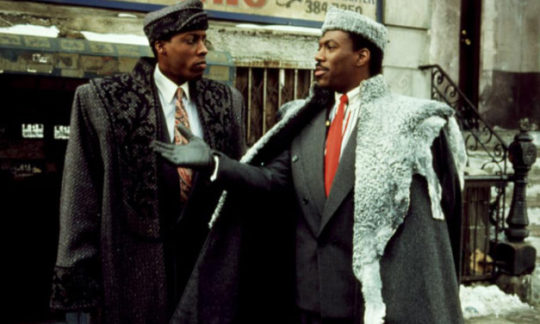
At this moment I truly was becoming a slave to streaming services. I wasn’t particularly leaping at the opportunity to watch this film, however I chose to watch it as I heard that Eddie Murphy was releasing a sequel this year. As someone who doesn’t like comedy, I found this rather funny in places but it's hard to laugh at the black stereotypes portrayed in such a film even when those stereotypes were perpetuated by a black person. There was also a lot of misogyny, something else that I don’t call comedy but just misogyny. I found it hard overlook these moments and kinda saw this element as the downfall to the film which detracted from any of the other comedic moments.
Score: 5/10
Do the Right Thing (1989) as seen on Amazon Prime
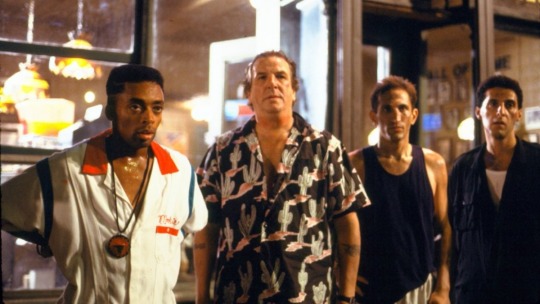
One of Spike Lee’s earlier films, Do The Right Thing is a film I’ve been dying to watch for quite some time. The film is like a fascinating book, with chapters on each of the plights of living in Brooklyn in the 1980s. Though it takes one character’s perspective, there are a multitude of other stories that can be found in this film, with them interlinking seamlessly and coming together at the end. This isn’t a film about race but rather one about anger and its potential to divide people, especially when things become heated and fingers are pointed. It covered a variety of perspectives which I like, almost like an episodic series where each episode is different and takes on a different character. This structure added variety to the film and allowed it to cover a multitude of topics in a small space of time. The structure of this film was only successful because its characters, who were funny, three dimensional and above all, had something to say. Director and writer Spike Lee played Mookie, the lead, a pizza delivery man and quite the f**k up on the streets of Brooklyn, using his mouth more than his actions to get by in life. I really liked the balance of moments of comedy and severity which had me laughing in places and immediately stopping afterwards. Well written and I commend Spike Lee for having written, directed and starred in the same film.
Score: 10/10
The Life Ahead (2020) as seen on Netflix
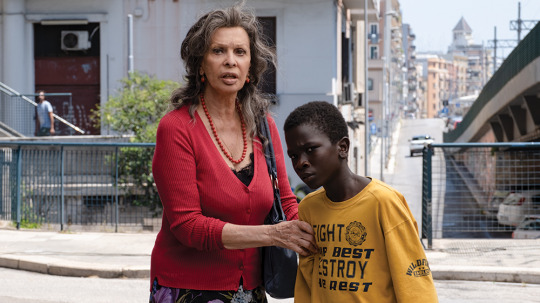
As an actress, Sophia Loren is one of my all time favourites. On seeing films such as A Special Day (1977) Two Women (1960) Marriage, Italian Style (1964), I began to appreciate the work of Sophia Loren and notice how much of an icon she still is today. Having picked up several awards over an expansive 71 YEAR career, she has been honoured many a time by the Golden Globes and Oscars as one of the finest actresses of all time. Her presence on screen is inspiring and she’s been often referred to as the Italian Marilyn Monroe for her beauty inside and out. Here at the age of 86, she plays a Holocaust survivor and foster mother who cares for a troubled boy in The Life Ahead. Loren’s character, Madame Rosa, eventually saving him from a miserable life thieving and selling drugs on the streets of Italian. Loren’s son, Edoardo Ponti directed this film for Netflix and was generous enough to give us Sophia Loren’s presence on screen once more by casting her in the film as the lead.
Score: 9/10
Gold (2016) as seen on Amazon Prime

I found Gold to be one of those talky, talky films that starts at the end and ends at the end (if that makes sense) which in my opinion isn’t the most courageous structure one could use, but is common in biopics. It either starts on the protagonist’s death bed or at the point where the police have just caught them and for Gold it was the latter. The appearance of women in this film was second to none and that’s not me saying the director should’ve added female characters for good measure or token but why make a film that only appeals to one demographic, despite the intensity of the story...film is universal after all and if a film appeals to one certain group then what’s the point of releasing it? This doesn’t detract from Matthew McConaughey’s performance though as a “prospector” looking for gold in Indonesia. Even saying this, the character was very typical of him and it didn’t truly stretch his ability as an actor, not like Dallas Buyer’s Club (2013), Killer Joe (2011) or Interstellar (2014) did. To sum up Gold into one word it’d be “meh”.
Score: 7/10
Creed (2015) as seen on Amazon Prime

This was one of the most surprising films of the month. I’m not crazy about the Rocky films nor see myself watching all of them anytime soon, but Creed appealed as a more modern take on the hit franchise. Michael B Jordan plays Adonis Creed, son of Apollo Creed, a champion boxer who died during a fight before Adonis was born. After being adopted by Apollo’s wife, Adonis Creed sets out to follow his father’s footsteps by becoming a champion heavyweight boxer himself, much to his maternal mother’s displeasure and his coach’s the one and only Rocky Balboa (Sylvester Stallone). The story is similar to that of Rocky and if anything, is a complete revival, using the son of one of Rocky’s former fighter as a backdrop to tell the story. Director Ryan Coogler (Black Panther 2018, Fruitvale Station 2013 ) brought this story to life and a courageous performance out of Michael B. Jordan. Not only was I fascinated by boxing by the end of the film, but just the whole idea of Adonis Creed, a fighter and not a quitter who thoroughly believes in pursuing your goals until they are obtained. Not only is this film for boxing fans but for those who share that same universal message and refuse to give into their own inhibitions to achieve great things. We should look to athletes more often in this respect and consider the pursuit of our own desires as boxing matches and marathon races more often as it helps put our fight into perspective and teaches us never to give in.
Score: 11/10
Arrival (2016) as seen on DVD
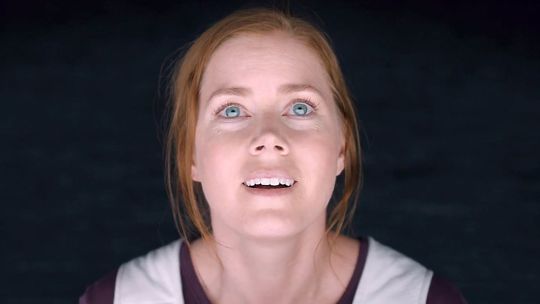
Before anyone comes for me for not having seen Arrival, before I was a movie buff I had briefly come across the film several times but had never taken the time to sit it out and watch it from beginning to end. I’m glad I did as Denis Villeneuve is one of my favourite directors evah and along with Christopher Nolan, I consider him as the King of Sci Fi. Every single one of his films is incroyable (as the french say) and it's a mystery why he hasn’t been handed an Oscar yet. Arrival is this slow and beautiful story of a linguistics teacher (Amy Adams) who agrees to help on a mission to communicate with extraterrestrial life forms that have landed on planet earth in the form of twelve huge spaceships. Structure isn’t something we typically consider when watching a film, but it plays such an important part in Arrival for time and the manipulation of it is the main theme of this film. Essentially, the language in which Dr. Banks translates from the intelligent life form gives its readers the ability to see into the future, which is when we come to realize that she’ll have a child, who will die of an unnamed disease. Despite this fact, she decides to live the life fate intended for her. The reason why Arrival is a highly credible film is because of the coverage it has as a film in terms of what it's trying to say as a film. From someone who finds it hard to bring out the emotion of a screenplay, Arrival is a great example to me as a film that combines both a cinematic feeling and a strong emotional presence throughout the film. It doesn’t abandon emotions or relationships just because the film is about aliens, but instead embraces them into the story and intertwines them with the aliens who’ve come to planet earth. At the end of the day, we can have explosions, spaceships and aliens galore, but if we’re unable to connect with characters on an emotional level then the film becomes boring. Arrival is far from boring and may bring a tear or two to your eye by the end.
Score: 11/10
The News of the World (2020) as seen on Netflix

I feel like it's impossible to hate a film with Tom Hanks in it and The News of the World definitely fits into that. Five years after the US Civil War, Cpt. Jefferson Kyle Kidd (Tom Hanks) spends his days travelling around the US ‘reading the news’ to anyone who’s willing to listen. The majority of the US was illiterate in the 19th Century, meaning it was up to people like Jefferson to inform others of the ongoings in the world by reading them the paper. It’s a wondrous thing to think about, how information was once spread throughout the world in such an archaic format. Jefferson did this off his own back, not asking for much and finding fulfilment in the reactions to the news that he “broadcasted” to them. Whilst on his travels, Jefferson comes across a young girl (Golden Globe nominee Helena Zengal) who’s negro family had been killed by lynchers. The girl was originally from a Native American tribe but had been separated by them, leaving her to fend for herself. When Jefferson comes across her, he’s reluctant to take her in at first but decides to take her to some relatives across the country. It’s definitely the role you expect of Tom Hanks and his heart warming nature is captured for us in this film for Netflix.
Score: 9/10
The Mask (1994) as seen on Netflix

It's hard for me to label The Mask as a good film as that would mean shaking off the horrendous amount of misogyny it has and the lack of diversity within its characters. Films mean different things for people, but ultimately most of them reflect an element of humanity and explore it on screen with originality and authenticity. Cameron Diaz’s character was only there to fulfil the sexual appetites of the men around her, which is something I loathe in female characters. Originality The Mask has, authenticity, not so much. That's probably the reason why I hate comedies so much, most of them are written by men and are about men so it can get quite boring to watch at times. I liked the idea of The Mask but it definitely could’ve been executed in a less misogynistic way.
Score: 5/10
Jackie (2016) as seen on Amazon Prime
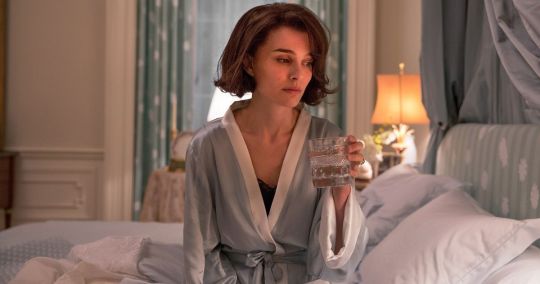
One word; perfection. This film was hands down one of the most beautiful, genuine and honest films I’ve seen in my entire life. It had me reminiscing Todd Haynes’ Carol (2015) in a number of ways, from the similar filmmaking techniques to the slow and melancholy atmosphere that was being created on screen. The AMAZING Natalie Portman plays Jackie Kennedy, wife of John F. Kennedy who was brutally assassinated on a visit to Dallas, Texas in 1963. The fact that I didn’t even KNOW that his poor wife was in the car with him at the point of the assassination is shocking. On watching the film, I learnt Jackie was a remarkable, brave and intelligent woman who after her husband's death put so much into preserving her husband’s legacy despite his lack of popularity. The way the film is shot and the music by the brilliant Mica Levi (Under the Skin 2013 , Monos 2019) just ties everything together into a enigmatic and wonderful film. Natalie Portman was nominated for Best Actress at the 2017 Academy Awards and rightly so. This film has further proven my thoughts on her as one of the greatest actresses of our time. I seriously cannot EXPRESS how much I love this film, directed by Chilean director Pablo Larraín, who’s also made another film that I can’t get enough of Ema, which was released 2 years ago.
Score: 12/10
Foxcatcher (2014) as seen on BBC iPlayer
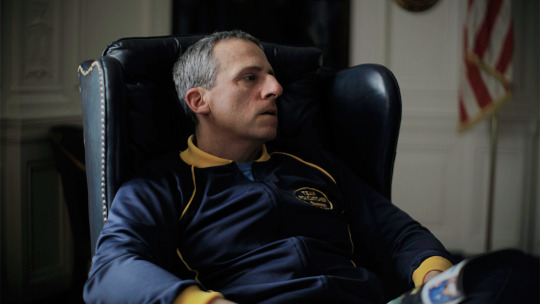
When we first think of Steve Carell, our minds probably drift to his most notable performance as Michael Scott from The Office or even Gru in Despicable Me. It's rare for a so called “comedy” actor to find his way into films with a more dramatic substance and over the last few years, this is what Carell has been showing us on screen, with this role in Foxcatcher and more recently, in Felix van Groeningen’s Beautiful Boy (2018). Foxcatcher is the true story of a wrestler offered the opportunity to train with a private wrestling team owned by a huge chemical corporation. Channing Tatum plays Mark Schultz, a quiet and reserved wrestler who trains alongside his brother David (Mark Ruffalo), also a champion wrestler. What's sad to see in this twisted story is how validated Mark feels once the powerful and wealthy John Du Pont (Steve Carrell) begins to take an interest in him and takes him under his wing. This relationship drives a wedge between Mark and his brother David, but much to John’s displeasure, it doesn’t last long. This is definitely a story of power and how people can react in bad ways when they are owed too much of it. Every performance in this was astounding and the slow and subtle telling of the story was truly beautiful to watch. Foxcatcher is a film I’ve been dying to watch for some time and it DID NOT disappoint. Period. The film was also nominated for five Oscars back in 2015, including Best Actor and Best Supporting Actor.
Score: 11/10
In Fabric (2018) as seen on BBC iPlayer
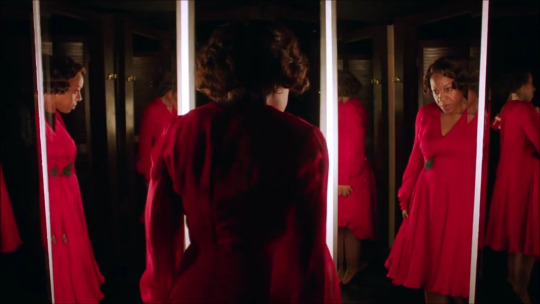
Based on the current reviews of In Fabric, I deem the film a poncy experimental spectacle. Not only did it not say much, but what it was trying to say was rather disturbing and quite frankly bizarre. However, it's not a film I can necessarily hate on as it is experimental, meaning from the get go, I shouldn’t be expecting any sort of clear cut narrative, with relationships, protagonists, conflict or hierarchies. Experimental films are more about exploring a central idea and having all its “characters'' not essentially prove the idea, but just talk about it, like a debate but everyone agrees in the end. A debate where everyone agrees would be boring, which is why I find experimental films to be boring as most of the time they don’t have a meaning and sadly as humans, we’re obsessed with finding the meaning of things or else we’ll go crazy. And I would say this film definitely left me crazy at the end, proving the idea of man’s constant need to find meanings in things. In Fabric wasn’t really relatable, funny, clever or bold. It kinda just...was.
Score: 5/10
Delicatessen (1991) as seen on DVD
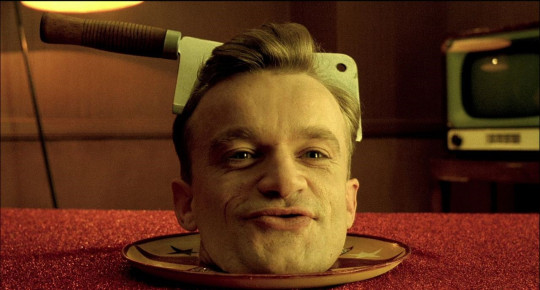
I love how the world likes to think that the American film market is the only film market when in actuality the French created the actual concept of cinema and the idea to project “movies” onto a large screen. With this has come a plethora of incredible movies from France that have gone onto to change the film industry forever. There’s a reason why the most prestigious and exclusive film festival in the entire world is held in the South of France and not LA. Jean-Pierre Jeunet is the auteur behind Amélie (2001) one of the most well known independent films ever to be made and before Amélie came Delicatessen. This film is Tim Burton meets Wes Anderson but in French and tells the story of a man working for a butcher and the crazy characters he meets in the same apartment as him. By the end it's clear that The Butcher is selling more than pork and beef down in his store and that the new tenant is due to be the next item on sale. I loved how weird and larger than life the characters were and the otherworldly set design used for this film. There were so many moments that are quite hard to explain the beauty of them and if you’ve seen Wes Anderson or Tim Burton’s work, you’ll notice the similarities between this film and their work, perhaps showing a french influence on the current American market.
Score: 10/10
Amélie (2001) as seen on DVD
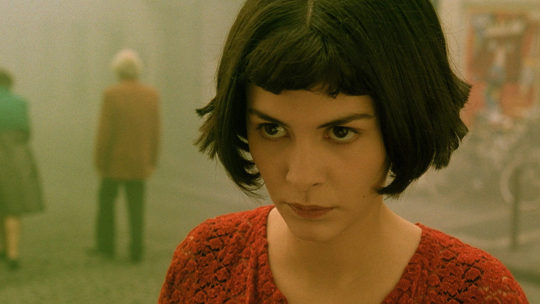
Continuing on with the French theme, I was reminded this month of the beauty of Amélie. Every, single, shot in this film is pure perfection and I bet all my money that Wes Anderson was a mega fan of this film when it came out. It's truly a film like none other and it’s only this time around did I realise how much I RELATE to Amélie. The way she sacrifices herself for others and gets nothing in return, the lengths she goes to tell someone something instead of JUST SAYING IT, her lack of friends, I can definitively say that there isn’t a character on screen that I’ve related to more than Amélie (besides Elio from cmbyn). If you haven’t seen Amélie have a word with yourself.
Score: 11/10
Pan’s Labyrinth (2006) as seen on Amazon Prime
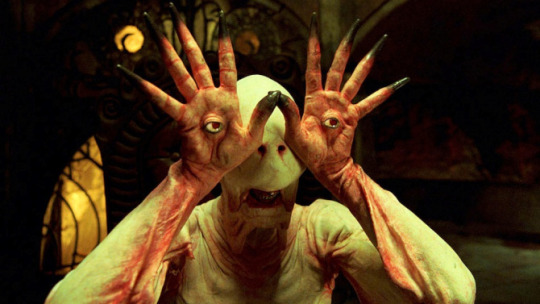
Pan’s Labyrinth was a surprisingly amazing film and I wonder why I hadn’t seen it sooner. I was astounded to see it was in Spanish which I thought made the story somehow better. It's rare that we see such high budget and well known film that’s in a foreign language but I’m glad this film got the noise it did when it was released. Guillermo del Toro (The Shape of Water 2017) tells us the story of 10 year old Ofelia and her discovery of magical creatures in the woods that inhabit the outskirts of her new home. Not only that but it’s 1944. The Spanish Civil War has been over for five years but small groups of guerrilla rebels continue to fight against the new fascist dictatorship led by Francisco Franco. This is a well structured film that shows two strong worlds and combines them in a satisfying way, which isn’t an easy thing as sometimes films can get lost in the facts of history instead of the emotions and dynamic relationships. The set design in this was UNREAL as always and I really felt for the characters and their given circumstances. And that’s what we call a film.
Score: 11/10
I Care A Lot (2021) as seen on Amazon Prime
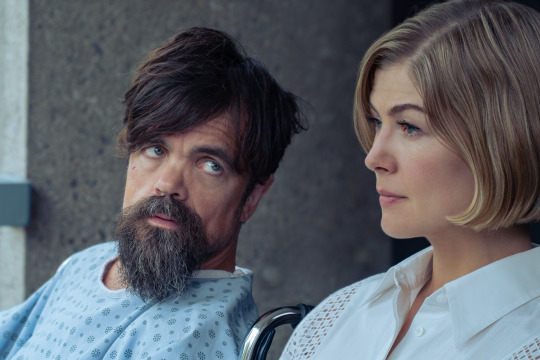
For a full review of I Care A Lot, follow the link: https://ratingtheframe.tumblr.com/post/643763403606867968/a-strong-performance-from-rosamund-pike-that-we
Score: 8/10
Interview with a Vampire (1994) as seen on BBC iPlayer
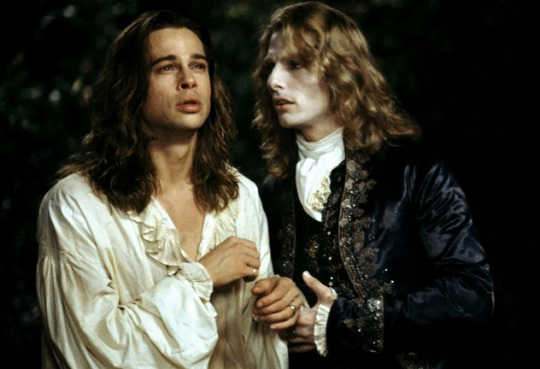
We were doing SO WELL until I made the costly decision to watch this waffle of a film, directed by Neil Jordan. Not only was the story all over the place, but the dialogue itself was incredibly on the nose and self explanatory throughout. It feels like there was more talking about the film instead of showing the film, which just made me switch off from early on in the film. I hated the casting of Tom Cruise in this and there were moments when I believed his character, but none of them outweighed the overarched and over bearing performance he was attempting to give. Brad Pitt was marginally better but the performance of Kirsten Dunst who was 12 years old at the time this film was released, outdid both actors. She was the only character that I truly felt for / cared about and her on screen presence was both enviable and wise beyond her years. Personally, I can’t explain what this film was even about because I truly didn’t get what was going on, however if you’re a fan of Kirsten Dunst’s work, this would be a suitable film to watch in that respect.
Score: 4/10
Fargo (1996) as seen on Amazon Prime

Fargo is probably most known as a Netflix series, but before that, it was originally a film directed by the Coen Brothers and starred the likes of Frances McDormand, Steve Buscemi, William H Macy and John Carroll Lynch. I’ve been meaning to watch Fargo for quite some time and I was not disappointed with the outcome of it. It's one of those good old fashioned crime films, with lots of twists and blood split throughout the film. The film won two Oscars in 1997; one for Best Actress which was handed to Frances McDormand playing a police officer investigating a string of murders in Minnesota and another for Best Original Screenplay. A really well constructed story with a fantastic cast and great cinematography work from Roger Deakins (1917 (2020), Blade Runner 2049 (2017) The Shawshank Redemption (1994).
Score: 10/10
The Darjeeling Limited (2007) as seen on Amazon Prime

The Darjeeling Limited further proves to us Wes Anderson’s ability to create entire new worlds and show us stories that take place all across the world. Three brothers, Peter (Adrien Brody), Jack (Jason Schwartzman) and Francis (Owen Wilson) have travelled to India in an attempt to bond with one another “spiritually” after the death of their father. Peter and Jack aren’t too keen on this little expedition, irritated at their brothers' intrusiveness over the trip. The majority of the film is set on this fanatical train travelling across India and yet again, we are blessed with some phenomenal production design to tell us a fun and uplifting story. What’s more is that the boys’ mother (Anjelica Huston) lives in India as a nun at the foot of the Himalayas. This becomes the real reason for their venture and such a thing changes the character dynamics between the three men. India is shown in all its beauty in this film using the backdrop of three men’s relationship with one another as a story.
Score: 9/10
The Life Aquatic of Steve Zissou (2004) as seen on DVD
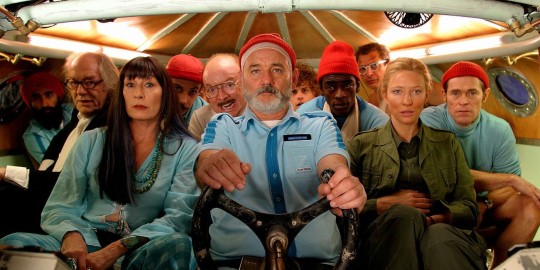
Another one of Wes Anderson’s lesser known films but equally as good as the rest, this film follows a group of marine explorers travelling across the pacific to try and kill a shark that supposedly ate a member of Steve Zissou (Bill Murray) ’s crew. With an all star cast composed of Bill Murray, Owen Wilson, Cate Blanchett, Jeff Goldblum and Anjelica Huston this film was entertaining, enlightening and cinematographically ambitious. Steve Zissou is a fictional character who makes a living off of extreme and dangerous marine explorations. He makes films of his travels using his crew and after screening his latest film, he meets a young man (Owen Wilson) claiming to be his son. Evidently, Zissou is reluctant to accept that this man is his son and uses his presence as financial gain to the project. I appreciated all performances in this film and the set design (as always with Anderson’s films) was exceptional.
Score: 9/10
Life of Pi (2012) as seen on Amazon Prime
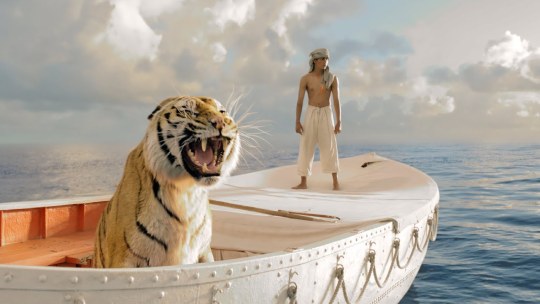
A highly visual and emotional film that carries beauty throughout in both performance and story, Life of Pi was directed by Brokeback Mountain (2005)’s Ang Lee and tells the story of Pi (Suraj Sharma and Irrfan Khan) a young boy alone in the middle of the Pacific Ocean with a fully grown Bengal Tiger. Winner of 4 Academy Awards including Best Director at the 2013 Academy Awards, this film does a phenomenal job of reminding us why cinema is such a superior and infinite art form. Pi’s family are on their way from India to America, exporting a large number of their zoo animals in hope of selling them once they reach the other side of the world. After a horrendous storm ravages their cargo ship, Pi is left all alone in the ocean with what only appears to be a small dingy, but to his horror, he comes to find that the zoo’s tiger Richard Parker is keeping him company in the middle of the ocean. Now if that ain’t a viable story, then I don’t know what is. To make a film look like it was set in the middle of a Pacific and with a Bengal Tiger is no small feat. Suraj Sharma’s performance was both truthful and powerful, despite the film being mostly shot in a studio with nothing but animation for Richard Parker. This is one of very few films that does the original novel justice.
Score: 11/10
Capone (2021) as seen on Netflix

Yikes. Capone has not been getting a lot of love in the media since its release on Netflix on 24th February. Personally, it's not the most god awful, offensive film I’ve seen and yet I wouldn’t have been the one to have made such a film either. The film is supposed to depict the last year of the infamous and notorious Al Capone, who suffered from numerous illnesses at only the age of 48. Tom Hardy plays the blood thirsty gangster and I have to say, this was a thoughtless casting choice. Hardy doesn’t have an ounce of Italian in his face and he put on this larger than life caricature of an accent that had me feeling rather sorry for him at moments when I shouldn’t have been. The acting was exceptional, but believable and interesting? That’s another argument altogether. Cinematography and sound wise, I thought the film was excellent in those respects but again, those should be additions to the integral story of a film. I get why Hardy signed up though, what actor wouldn’t want to play a mob boss? Maybe the point of Al’s life in which this film was built upon was perhaps wrong for the screen and I’m sure most would have preferred Hardy to play Capone at his peak. This film is a clear example of people getting ahead of themselves when they first explore an idea for a film. This film could have easily been saved in the development stage had someone said let’s not do this.
Score: 5/10
Creed II (2018) as seen on Amazon Prime
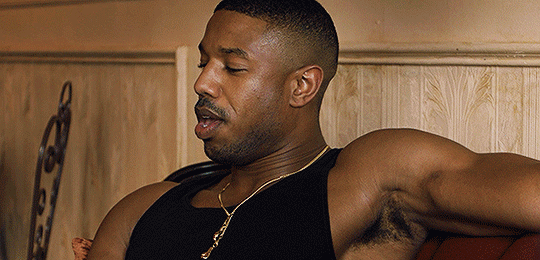
Obviously a prequel will always outdo a sequel, however I found Creed II to be just as meaningful as the first film. Maybe even more so as Adonis Creed (Michael B Jordan) is becoming a father his responsibilities have shifted dramatically. He’s also desperate to fight Viktor Drago, a Ukrainian ruthless boxer whose father accidentally killed Creed’s father in a match decades before. Drago is tough, beyond what he and his coach Rocky (Sylvester Stallone) could ever imagine and because of this, it drives a wedge between Adonis’ relationship with his coach. Creed thinks Rocky doesn’t believe he can beat Drago but Rocky insists not fighting the bull of a boxer would benefit him greatly, after all, look what happened to his father. The character dynamics have shifted in this sequel, but the structure has remained largely the same. We kind of knew what we were being served at the end and the change in character was there for everyone.
Score: 10/10

...and that’s it! Everything I watched this February, you do not want to KNOW how long this list took to compile. Thanks for reading and see you next month!
ig: @ratingtheframe
#Movie Reviews#new movies#movies#natalie portman#sci fi films#alex garland#netflix original#Netflix movies#netflix#fifty shades trilogy#malcolm & marie#zendaya#john david washington#sam levinson#euphoria#coming to america#do the right thing#spike lee#the life ahead#sophia loren#matthew maconaughey#creed#michael b jordan#arrival#denis villeneuve#the news of the world#tom hanks#the mask#jim carrey#cameron diaz
21 notes
·
View notes
Text
xu my beloved
I BEEN THINKING
I would once again like to convert the fandom’s spelling through use of this compelling presentation:
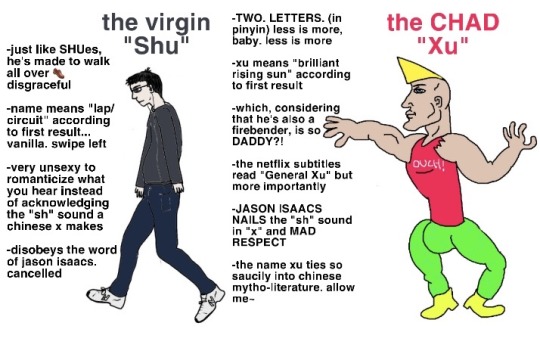
Tumblr stop blurring the truth
Anyways, a swan dive into the Four Classic Novels, which are among the world’s oldest and longest fictional works and a staple of Chinese literature ~ as I elegantly draw connections circling back to one of AtLA’s many, many background characters.
No, more likely you’re about to belly flop into incoherent jibber-jabber.
General Xu is said to have been Zhao’s superior at the time he discovered Wan Shi Tong’s library and stole the moon/ocean scroll. That’s it. That’s all we know 😔
But no fear! For I have stumbled across the famous character Xú Níng from the third of Four Classic Novels, Water Margin (translated from Shui Hu Zhuan), written by Shi Naian or his pupil Luo Guanzhong. And man, he’s a piece of work.
An upstanding, military-orientated fellow (which is good for purposes of sketching out General Xu’s persona in his image), Níng is an expert of the unique Chinese spear, attributed to his entire character and role in the story, as his nickname is literally the “Gold Lancer”... which slaps.

Qiang’d to make your acquaintance
He’s the 18th of the 108 Stars of Destiny, brutally simplified as a Taoist myth separating the first 36 stars into the Heavenly Spirits (honor roll), found within the Big Dipper and centered in the sky, while the other 72 are Earthly Fiends (getting coal for Christmas), scattered around true north. Níng at lucky number 18 is the Guardian Star. (This concept in Taoism leads us to believe our destinies correspond with the stars - which is, just, super cool to me. Are you a Libra? No, plebeian, I’m Huyan “Double Clubs” Zhuo. Seriously, Bing him.)
These 108 are the main focus of Water Margin: the tale of every last star released from prison, reborn as 108 heroes. They join together at what’s known as the “Grand Assembly” and continue to fight injustice, beating the Avengers over 500 years to the punch. (Go, kings, go!)
Sounds suspiciously White Lotus-y to me... but hold your komodo rhinos! Xú Níng is a trickier case. His “honorable” roots began before amnesty from the Song emperor, when he banded with outlaws. And before the 108 Stars of Destiny resurfaced as noble heroes, they were imprisoned by Shangdi for a reason: being, uh, demonic overlords.
And this is why I gravitated towards this famous fictional Xú: Shi Naian’s use of messy heroes with messy pasts, parts heavenly warriors and parts Team Jacob (eugh), as the synthesis of the anti-hero, and the embodiment of the Yin Yang.
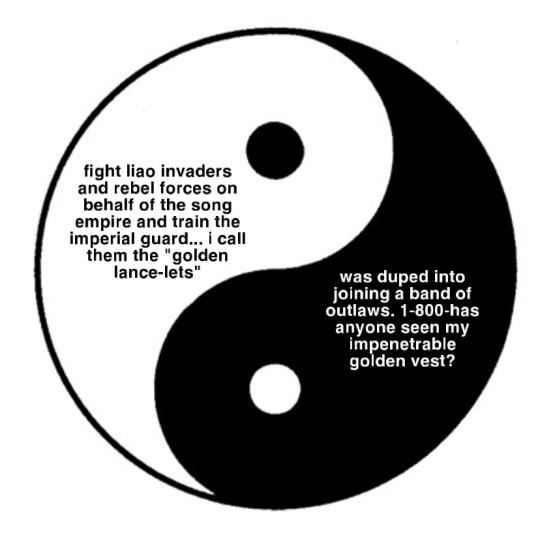
Zhao’s history with poking at the dual spirits? Oh yeah. It’s all coming together.
So, similar to the other 107, Níng is complex. Song Jiang, leader of the 108 Stars of Destiny himself, kills his concubine in anger and escapes any consequence, a bullheaded mentality that the rest of the stars are said to echo. Etcetera.
So, Avatar the Last Airbender’s once-mentioned General Xu?
If we lean on parallels, like real men do, there’s a lot of material to work with here. It’s unclear how the backwards ranking system of the Fire Army pans out, but seeing as Zhao pursues a naval career, serving under a general (the naval equivalent being an admiral, I’m sure) seems to precede serving under Admiral Jeong Jeong. This would mean Xu was first to leave a significant impression on the bastard boy, emphasis on enlisting as boy, switching to the navy as bastard.
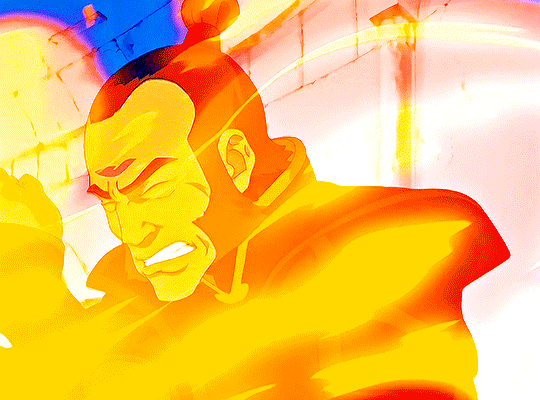
*Does a gay little dance that pisses you off*
General Xu could have been the ambitious type, obsessed with leaving a mark of historical value. Clean-cut conclusion, circles back nicely, pat on the back... but VANILLA.
Why not go all the way and theorize he’s somewhat non-human, desperate to translate mortality into immortality by means of securing a legacy as he wanders in search of the 107 stars, his home in the heavens? Obsession with fame, underpinned by the ever-so-subtle paranoia of being forgotten, slaved away like the 41st Division, seems to be Zhao’s thing. Did he pick it up from a celestial Xu without knowing? Does this inextricably relate to Xu’s name having to do with the “brilliant sun”, the closest star in our sky - and/or its symbolism with the moon? Is it three in the morning right now and I shouldn’t be doing this? It’s up in the air!
Also consider: if Xú Níng’s title is the Guardian Star, had the general passed away in the heat of battle, would he watch over Zhao in the remaining phases of his life... disappearing in the few minutes when the moon is struck out, too late to save him by the time the stars slowly flicker back after Yue ascends?
Did Xu use lances a lot (now read that five times fast); was he a damn pro at spear-wielding? Was he fun to prank, easy to trick? Does he have a questionable history in the underground before duty called? According to sources, Xú Níng is around six and half feet, sporting a dark beard and “ample waistline”. Shall this apply to our Xu as well?!
Yes, to all of the above. Tune in as this custom character development progresses - I specialize in parallels. AtLA could use more plus-size representation while we’re at it! I want more of my friend-maybe-spirit-shaped, lance-sporting, inclined-to-fathering-Zhao general who always has an eye on the stars. Someone who intends to reach their height again, and sends his trusted second in command to retrieve the moon scroll in hopes of establishing some connection. The golden lancer... the enigmatic Xu.
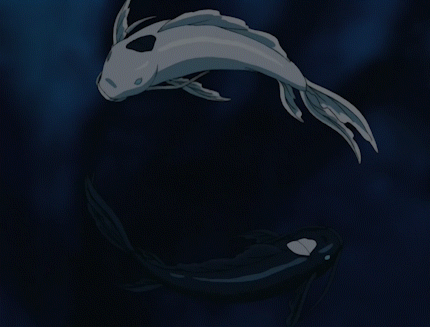
Food for thought owed to @crookedmouth-mountainbones for sharing her thoughts on Xu and Zhao’s relationship right here.
Sources: X X X X X X <3
#general xu#character study??#it’s 4:30 am i’ll edit when my screen isn’t doing that weird vertigo lurching thing ya know?#trash ^^^#background characters appreciation#zhao and all his spirit friends... *tsk tsk*
13 notes
·
View notes
Link
[...]"Well, yes I am. I joke about it, but I am really big-headed." About everything? "I like to think that I joyously celebrate my gifts." Which are? "My chief gifts are - naturally good at all sports with a raw talent for pretty much everything, which if nurtured could develop into improper talent. I always say if I'm not good at something it's just because I've not had time to focus on it ... it's just uncrafted, like a slab of rock that contains the statue of David within it." [...]
[...] And with good reason, Morgan says. "Here's the funny thing: I've spent five years with him and I don't know Michael at all. We have a very courteous and respectful relationship. This is why he plays Frost and Blair so brilliantly, because he's inscrutable - and there's a brilliance and inscrutability to all of them."
Morgan says Sheen is the most technically accomplished actor he has seen. "He can be doing a long speech and when he's finished, I'll say to him, 'You know that line three-quarters of the way through the speech? I'd like to replace it,' and he'll say, 'OK no problem' and just do it. He doesn't flicker. It's like a guy juggling 15 knives being told to juggle two more that are aflame. 'Oh, no problem.'"Of course I'm inscrutable, Sheen says, I'm an actor. "My career is pretending to be other people so inevitably there is a covered-up-ness about that in itself. I can't remember who said it, maybe Oscar Wilde - give a man a mask and he reveals his true face. I guess I'm more comfortable revealing myself through saying, 'This isn't me, this is Brian Clough, but actually it is me.' I put the characteristics of somebody else on, but what I'm revealing is actually about myself." [...]
[...] "It's not just something of me. That's all I play - me. The secret to acting is don't act. Be you, with add-ons. Playing Clough I'm playing my own arrogance, that's all I can do. I can't pretend to be big-headed, I just have to find my own big-headedness, conceit, arrogance, whatever it is compensating for his insecurities. He was covering something up. The key for me was the injury when he was younger, when he was stopped doing something he was brilliant at."
Sheen finds Blair most slippery of all, reflected through a perma-smile more enigmatic than Mona Lisa's. Producer Christine Langan, who has worked with Sheen on five BBC films, calls it "the smile as carapace". Although his characters might ultimately be unknowable, she says Sheen's strength is ready access to his emotions. She cites a lesser known film - Dirty Filthy Love, in which he plays a person with Tourette's with visceral intensity. "It's extraordinarily emotional," Langan says. "He seems to cut a layer of skin away." The emotion, she says, is equally evident in Sheen the man. "He doesn't button up his feelings when he's angry about something. But it's often justified."
True enough, Sheen says, he can be a right pain when he's immersed in a role, and he doesn't argue as Michael Sheen, he argues in character. "There's a point where the boundaries have to be blurred." He insists it's a necessary point to get to, but admits it's confusing. "That's why I refuse to go on political programmes. I get invited on a lot because of my connection to Blair, and I always say no."[...]
[...] "I've had a complicated relationship with LA, but I'm coming to like it more. I think part of me has just gone, 'Look: shut up moaning about it, this is where you are.' The only person who suffers by me going on about how much I hate it is me."Did he resent LA because of the split with Beckinsale? " It's a mixture of things. The reason I was in LA was because of my daughter. I hadn't chosen to go and live in LA, so that was part of my difficulty with being there. And how it affected everything else - it affected my partner because if she's going to live with me she has to live there as well." He has been with dancer Lorraine Stewart for five years, and says he's ready for fatherhood part two.Is it true that he punched Jeremy Northam on the set of The Golden Bowl when the actor insulted Beckinsale? He nods, half cocky, half sheepish. "Sadly it is true." Did he hit him hard? "Sadly I did, yeah. It was because I thought he was being disrespectful to someone I loved." Was that punch a one-off ? "I think he may be the only actor I've ever hit." Who did he hit last? "I think it may have been a photographer in Los Angeles. A while ago. It's not a regular thing, it's just when people I really care about are under threat. That's one of the good things about growing up with the threat of latent violence around you, I guess." Port Talbot has previous with combative actors - it was also home to Richard Burton and Anthony Hopkins. [...]
[...] Sheen really is very Welsh, despite his fascination with the English. He loves to talk. About anything. So he segues from the greatest ELO songs ("Mr Blue Sky is an epic of grandeur and greatness") to the people he'd like to play (he'd love to give Ronnie O'Sullivan a go), to his favourite word: discombobulated. Why does he love it so much? "Every time I use that word, my girlfriend goes, 'Oooh I like that word,' and my daughter likes it as well. You could imagine a character on some kids show called Mrs Discombobulation - and in a truly Welsh sense it's trying to get as many syllables into a word as you possibly can." Anything else? "Yeah, it's a good way of describing what life is like most of the time." [...]
22 notes
·
View notes
Text
Spider-Man: Across the Spiderverse

Spider-Man is pretty ubiquitous in the cultural zeitgeist, multiple animated series, a couple of really good video games, and myriad of successful films. And the one that really blew people (myself included) away was Into The Spiderverse, which was nothing short of a masterpiece! Animation that blew the audience away, a dope soundtrack and a fantastic story that was easy to follow. So Sony Animation really had a lot to live up to with their follow up Across The Spiderverse.
Spider-Man: Across The Spiderverse takes place a year after the events of Into The Spiderverse. Miles Morales has been living his best Spider-Life, in spite of juggling his other responsibilities. When he is reunited with Spider-Gwen and Peter B. Parker, who introduce him the enigmatic leader of a secret society of Spideys, Miguel O’Hara aka Spider-Man 2099; who tell Miles of a threat that might destroy the entire multiverse.
The first thing entering my head was how much fun that I had watching this film, truly a work of art. But narratively this was a disjointed mess.

I can’t sing the praises of these visuals enough, Directors Joaquin Dos Santos, Kemp Powers, and Justice K. Thompson built off and very strong foundation, showcasing a use of colors, and art styles that I haven’t seen since the original run of Samurai Jack.

Vocal performances were amazing, Shamiek Moore does miss a beat returning to the role Miles Morales, same goes for Hailey Steinfeld, and Jake Johnson as returning Spider-people.
Newcomers Oscar Isaac (2099), and Issa Rae (Spider-Woman) deliver a level of maturity as mentors to the Spider Society.

But Daniel Kaluya as Hobie Brown was everything I dreamed he be in this role, his Punk Rock/Chav energy was on full display and I am so here for it! Jason Schwartzman was beautifully awkward as originally c-tier villain The Spot. And I am almost certain that I heard him make a Wes Anderson reference.
A fast paced score, the matched the film’s kinetic visually. The soundtrack was a certified bop, with a few of my favorites by the likes of Rap legend Rakim.
But pacing is part of this movie’s problem, there moments that hit me with information overload and the amount of characters that will be important in the next film popping in an out made certain bits easy to forget if your neurodivergent like myself.
The writing team of Lord and Miller, as well as David Callaham, clearly had some big shoes to film with story and what they did was very ambitious, but I feel like they forgot that less is more.
So there is term in media known as sequelitis, and it this movie suffers from it, does that make it bad film? Absolutely not! But the problem is that movie does what John Wick 3 did, sequel baiting for 2024’s Beyond The Spiderverse. There was so much set up, that I was worried that this movie was trying to give Avengers Endgame a run for its money and at 2.5 hours it almost did!
I’m so glad I got to see this world again and I will be having second helping. But I would be remised to not point out the film’s very tiny list of flaws.

See you beyond the spiderverse, true believers!
I give Spider-Man: Across The Spiderverse a 4 out of 5.
#movie review#sony animation#spider man#into the spider verse#across the spiderverse#spider man: across the spider verse#spider man 2099#spider Gwen#spider punk#spider ham#spider man noir#marvel#peter parker#miles molares#gwen stacy#spider woman#hobie brown#miles morales#jessica drew#miguel o'hara#spidey#The spot
16 notes
·
View notes
Text
Isabelle Huppert: The Most Dangerous Actress in European Cinema
Etre actrice, c’est avant tout faire l’apprentissage de sa liberté.
- Isabelle Huppert
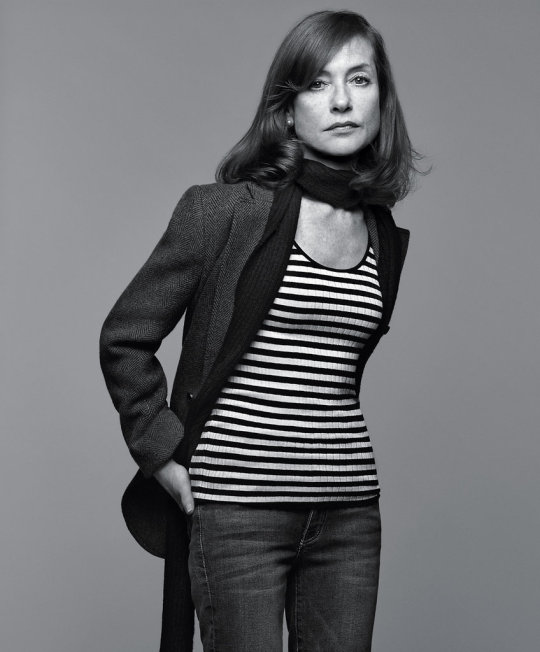
At 66 years old, Isabelle Huppert has had a long, celebrated career and is regarded in the highest echelon of French actors. Among actresses, Isabelle Huppert holds the record for César Award nominations (France’s Oscar award), with a whopping sixteen. She has also had twenty of her films in competition at Cannes, more than any other actress. And she is among just four actresses who have won the Best Actress prize at Cannes twice.
Not a bad track record.
Though she has appeared in a few American productions over the years, including “Heaven’s Gate” (1980), “The Bedroom Window” (1987) and “I Heart Huckabees” (2004), her best films have all been European.
Extraordinary women marked by tragedy and surrounded by mystery — these are Huppert's trademark cinematic roles. The films of Isabelle Huppert tend to be filled with sociopaths, self-mutilators, and murderers.
There was the jealous postmaster in “La Cérémonie,” the gun-toting young bride in “Coup de Torchon,” and the prostitute who poisons her family in “Violette Nozière. “The Piano Teacher,” “Elle” and “Greta” would make a crazy triple feature. Overall Isabelle Huppert, one of the iconic dames of French cinema, has garnered a reputation for being cold and steely. The French actress, now in her mid-60s, consistently chooses roles that are morally complex and sometimes hard to watch. And yet we can’t bring ourselves to look away.
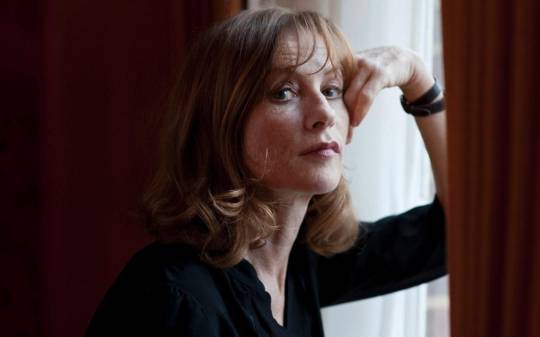
Susan Sontag, who once called Huppert “a total artist,” said she had never met “an actor more intelligent, or a person more intelligent among actors.”
Huppert has been called France’s Meryl Streep for her technical skill, but for all her shape-shifting, Streep’s strongest women have never gone so dark as the roles Huppert has played.
Huppert expresses the moods and mental state of her characters with precision and great sensitivity. Her seemingly expressionless face and sparing facial expressions have become something of a trademark.
Fiction has a tendency to inflate things, she said once in an interview with The Financial Times in July 2017. "But when I look at people on the street, I find that most of them are pretty empty in their eyes. I have to do even less." To observe, she has been taught, you have to take away, not add something.
Isabelle was the youngest of five children, born in Paris to an engineer father and a mother who taught English. Her mother is credited with spotting her talent early on, and encouraging her to develop it. She was already well on her way as a teenager, getting acting jobs while studying at the National Conservatory of Dramatic Art in Paris.
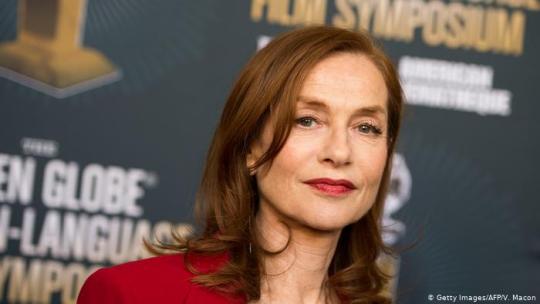
Huppert’s résumé is remarkable over five decades: Just over 140 films since her debut in 1972, for many of cinema’s most audacious visionaries, including Claude Chabrol, Claire Denis, Curtis Hanson, Hal Hartley and François Ozon.
In “Things to Come,” a wistful, funny drama by the French director Mia Hansen-Love. She plays Nathalie, a Parisian philosophy teacher whose husband leaves her for a younger woman, whose mother dies, whose publisher won’t reissue her book — and yet, who finds unexpected freedom in all of these losses. Nathalie heads toward the light and Michèle toward the dark, but both roles showcase Huppert’s great ability to derive power from vulnerability.
What directors loved about Huppert — and she prides herself on being an auteur’s actor — was her ability to convey moral complexity in the most unique ways.
Working with such auteur directors, Huppert can inhabit extreme characters — "survivors who can be victims and rebels simultaneously," says the actress. "My films give these women a voice. Because even though they live on the edges of society, they are there: women who live brutal lives. It's a brutality that they themselves never sought out," Huppert told Zeit Magazine.
Paul Verhoeven who directed her in “Elle” described Huppert as a “pure Brechtian actor,” in that she puts distance between herself and the audience, without trying to seduce it or seek its sympathy.
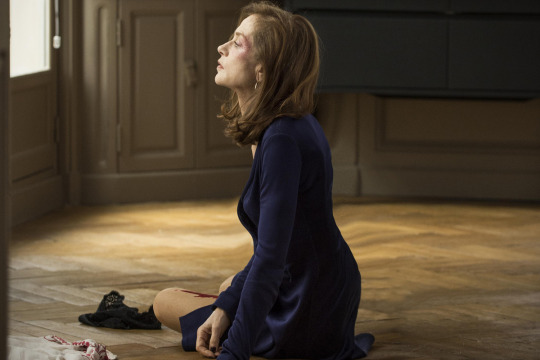
The actress is notorious for her illegibility - her almost Bressonian lack of expression, and the profound unrest she’s able to convey from behind the stillness of her freckled resting face. Pauline Kael, the famous film critic, once complained that “when [Huppert] has an orgasm, it barely ruffles her blank surface.” If Kael had lived to see “Abuse of Weakness,” “Elle,” or “I Heart Huckabees,” perhaps she would have come to appreciate how the stillness of Huppert’s unbeatable poker face allows her to normalize even the strangest and most perverse of characters; to make it seem as though any of their behaviors, no matter how unusual or demented, are as natural to them as we are to ourselves.
It’s a quality that European directors and audiences have embraced, but which can seem more foreign to Americans. Huppert loves American cinema, but she also knows her sensibility is distinctly French.
Huppert is known for her privacy and reserve - she generally doesn’t talk to the press about anything other than her films - and if there’s a connection between her autobiography and the roles she chooses, that’s something that only she knows.
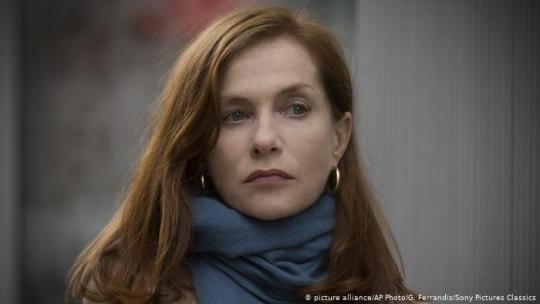
Aware of her own enigmatic appeal, she has no qualms about exploiting it. She has even less desire to charm, although her formidable impassivity sometimes betrays a hint of vulnerability. Not that she will let the viewer get too close, however, as she is forever intent on remaining “more like a question mark than a statement”.
Isabelle Huppert is not just courageous when it comes to choosing film roles and artistic collaborators. She is fearless, and such is her integrity that we trust her instincts and follow wherever she leads. That’s what makes her the most dangerous actress of our time.
Below is a top ten list of Isabelle Huppert films. They are not in order nor are they her very best. There are simply too many films in her body of work that would deserve equal consideration. Instead the list is made up of films that given an introduction to her wide ranging talents.
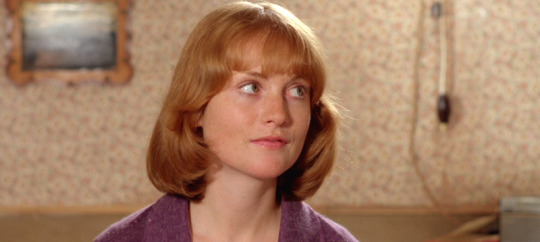
1. The Lace Maker 1977
Isabelle Huppert won the most promising newcomer award for her graceful, guileless performance as Pomme in Claude Goretta’s masterly adaptation of a Pascal Lainé novel, which took its title from a Vermeer painting. Whether doing her chores at a Parisian beauty salon, playing blindman’s buff on a Cabourg clifftop with dashing Sorbonne student Yves Beneyton, trying to eat an apple without disturbing his reading or choking over dinner with his snooty parents, Huppert is mesmerising.
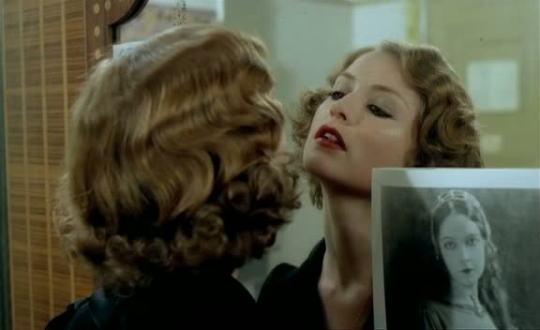
2. Violette Nozière 1978
The first of her seven collaborations with Claude Chabrol earned Huppert the best actress prize at Cannes. She was 25 when she played the demure schoolgirl who shocked 1930s Paris when details of her double life as a prostitute emerged following the poisoning of her father. Violette claimed he had abused her, but Chabrol thinks otherwise and exploits Huppert’s genius for switching between fragility and cruelty to counter the surrealist myth that the teenage parricide was an anti-bourgeois icon.
Huppert embodies this character that’s chiefly concerned with finding love. She walks the streets at night, characteristically promiscuous, but don’t call her a prostitute. She’d refute. Throughout the film, she gives more money to the men then vice versa. At night, when she leaves her quiet bourgeois home, and finds a man to accompany her, she looks unusually bothered. The film is sometimes maddeningly ambiguous but perhaps that’s the point - Chabrol and Huppert want us to feel mixed about her.
Violette is a woman with an air of mystery around her. She’s precocious but not as clever as she thinks. Huppert gazes and kisses her own mirror reflection. She writes fictional love letters to herself as well. Huppert quietly stresses the motivation behind the character: desperate to find someone to love, or else she’ll have to love herself. Except, she can’t even love herself because she feels stifled by her home life. And as ever with narcissism, there are dangerous consequences.
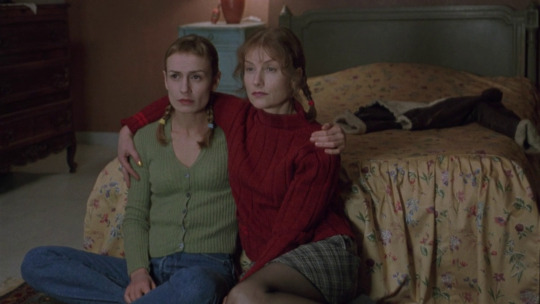
3. La Cérémonie 1995
“Chabrol only ever cast me as fairly ordinary characters,” Huppert once revealed. “They just have rather particular destinies.” While she would go on to embody Chabrolian womanhood (“not victims, not fighters, somewhere in between”) in Rien ne va plus (1997), Merci pour le chocolat (2000) and Comedy of Power (2006), she gave her finest performance for him in this seething adaptation of Ruth Rendell’s A Judgement in Stone.
An upper-class family warns their meek maid (Sandrine Bonnaire) about the local mail lady, Jeanne (Isabelle Huppert). They become friends regardless. Huppert plays Jeanne as kooky, comic, and rebellious. We gradually find out more cryptic background on her character, which gives her spirited attitude a darker edge. She’s either heartbroken or heartless. Huppert portrays a character with so many contradictory traits without ever making it feel false.
Huppert performs the role cunningly. Jeanne is energised like a child, but she’s smart enough to know how to win over the maid. She’s a little silly - when she enters the family’s home while they’re away, she touches everything. Huppert balances all of this next to the near-mute Bonnaire, both slowly exacting their revenge against the upper class. Chabrol’s trademark: clash of the classes.
Huppert thoroughly deserved her first César.
In 2014, Huppert performed Jean Genet’s play The Maids with Cate Blanchett. The play was inspired, as was La Cérémonie, on the same true-story about the Papin sisters.
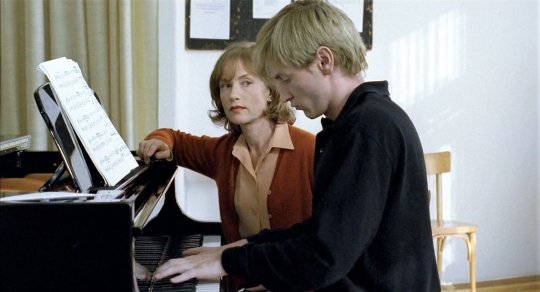
4. The Piano Teacher 2001
The Piano Teacher is an elegantly made film about the deranged endeavors of love. Huppert plays a buttoned-up music instructor, Erika, who attracts the eyes of an unassuming man half her age. She still lives with her mother and there’s a danger that lurks behind her carefully placed gaze. She’s been sexually repressed for such a long time; her repression and self-hatred has slowly evolved into masochism. It drives her to haunt peep shows, spy on copulating couples and mutilate her own genitals. This disturbing film really made an impact world wide.
Nobody said this film was an easy watch!
Haneke gives the spectator all the intricacies of the concept of perversion inserted in Huppert’s character of Erika, a successful piano teacher and an apparently impeccable social life. Well, that’s what Erika keeps on the surface.
Huppert declared the second of her four collaborations with Haneke to be the film she had long been searching for.
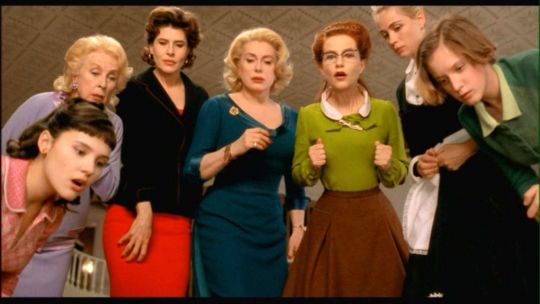
5. 8 Women 2002
There’s no validity in the truism that Huppert doesn’t do comedy. In fact she proved she could both dance and sing (the plaintive ‘Message personnel’ is a career highlight) in François Ozon’s chic 1950s musical whodunit. Sporting a tight bun, a buttoned-up twin-set, pursed red lips and butterfly spectacles, Huppert invokes the spirit of legendary farceur Louis de Funès as Catherine Deneuve’s argumentative sister. She gives an indelible display of neurotic, spinsterly bitchiness that is simultaneously piteous and hilarious.
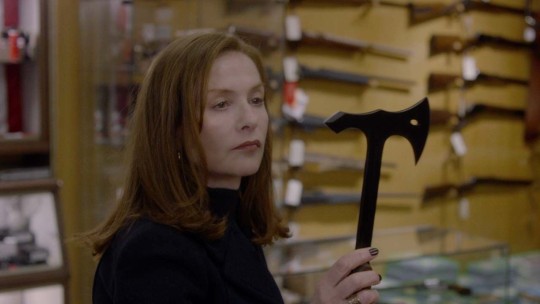
6. Elle 2016
A successful woman enters a real ordeal after being raped by a stranger in her home. Powerful, ‘Elle’ unravels all the nuances of a character’s life inserted into a completely incongruous personal, social and psychological reality. Here, the character will demonstrate how her attitude towards the world follows a sociopathic pattern of acting, despising any form of emotional attachment and using other individuals solely to satisfy her most primitive instincts. The film earned her an Oscar nod for Best Actress, which was fabulous but also made me wonder what took so long. Certainly she’s turned out enough superb performances over her nearly five decade career to have earned this recognition sooner.
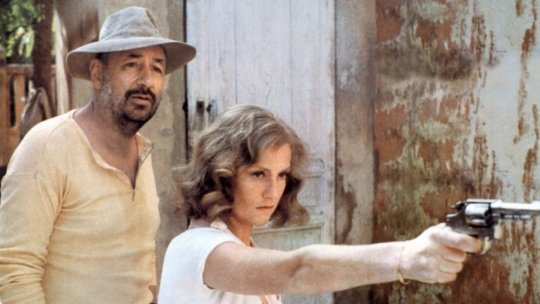
7. Coup de Torchon 1981
Having survived a seven-month stint in Montana for Michael Cimino’s Heaven’s Gate(1980), Huppert ventured to Saint-Louis in Senegal for Bertrand Tavernier’s Oscar-nominated transposition of Jim Thompson’s pulp novel, Pop. 1280, from a small Texan town in the 1910s to west Africa on the eve of the Second World War. Although Pierre-William Glenn’s sun-scorched Steadicam imagery seems antithetical, this is a darkly droll noir that sees Huppert in an unusually skittish mood, as the abused colonial wife who forges an unlikely alliance with Philippe Noiret’s pathetic rogue police chief, who is humiliated by everyone around him, and suddenly wants a clean slate in life - but resorts to drastic means to do so.
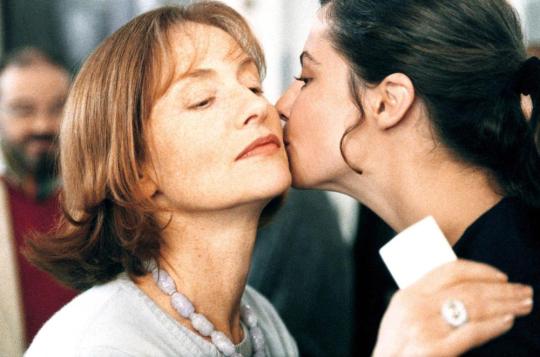
8. Merci pour le chocolat 2000
The film follows the nuances of a French upper class family, exploring the destructive ways in which each member acts on the world. Directed by Claude Chabrol, ‘Merci pour le Chocolat’ is an interesting film, bringing a more cadenced plot that values studying each meander of the behavior of its central characters.
The movie is set in Lausanne, and that Swiss location, having an ambient sense of buttoned-up severity and menace, is an appropriate setting with a Nabokovian mien for this horrid tale of sociopathy.
Huppert dominates the film with the slightly frigid poise of a great dancer who has retired to become an exacting teacher. She plays Mika, a woman who presides wearily and almost negligently over the prosperous chocolate business built up by her late father. But however disengaged she is in the boardroom, in the kitchen she loves chocolate with a passion - concocting various types of drinking chocolate, using subtly differing recipes, with fanatical and murderous care.
There is something fascinating about Huppert's face here. In repose, it has a kind of unsettling serenity, the serenity of a cunning and covert predator who has already decided on an unspeakable course of action.
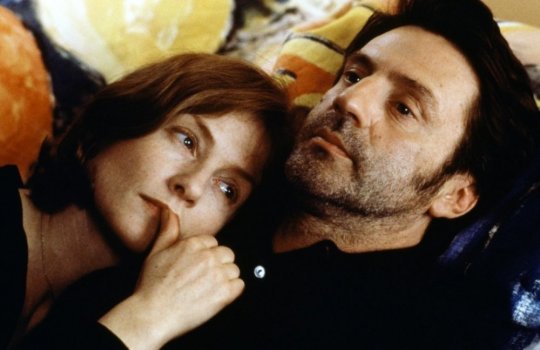
9. La Séparation 1994
Isabelle Huppert and Daniel Auteuil play a couple on the verge of a separation. The relationship’s mainstay is their child, one-year-old Loulou. Autueil gets most of the film’s focus, but he’s essentially a sitting duck, nervously shifting between passive-aggressive contempt and hopeful endearment, as he prepares for the outcome of his girlfriend’s infidelity. He says, “Never two without three.” This could be the quote-totem of the film.
The director smartly leaves the interloping lover out of the film (he’s never seen or even named). Instead, we study Auteuil’s growing impatience and Huppert’s pivotal decision. She adds a lot of depth to a character that could’ve just been the unsympathetic partner of the cuckold.
Huppert gives her character integrity and even though she’s ostensibly guilty, she never comes off as purely selfish. She’s troubled, as well, by their situation - we sense her detachment not due to ego but because she’s boggled in trying to assess the right mode of conduct. Huppert and Auteuil have great chemistry, changing gears effortlessly between vitriol and affection.
Huppert’s distinctive talent for suppressing suffering is readily evident in her slowly disintegrating relationship with Daniel Auteuil, as Huppert imparts chilling intimacy to a withdrawn hand, an unanswering gaze, a treacherous silence and a careless word in conveying the pain of falling out of love.
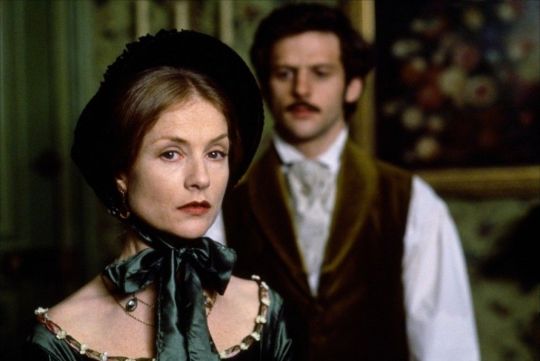
10. Madame Bovary 1991
Not her greatest film but certainly one of the most accessible for anyone not familiar with the talents of Huppert. Based on Gustave Flaubert’s fabulous novel, the film brings the exacerbated trajectory of a young girl who has a highly romanticised view of the world and craves beauty, wealth, passion, as well as high society. It is the disparity between these romantic ideals and the realities of her country life that drive most of the novel, leading her into two affairs and to accrue an insurmountable amount of debt that eventually leads to her suicide.
This adaptation of ‘Madame Bovary’ is perhaps the best of any adaptation to date. Claude Chabrol manages to capture even the most emblematic nuances of Flaubert’s book, elevating a unique atmosphere for the unfolding of scenes.
However, the main point of distinction between this work and the others is the presence of Isabelle Huppert as protagonist, delivering a powerful and visceral performance from the first to the last scene.
#isabelle huppert#film#cinema#french#france#culture#art#actress#acting#artist#icon#femme#huppert#french cinema
152 notes
·
View notes
Photo
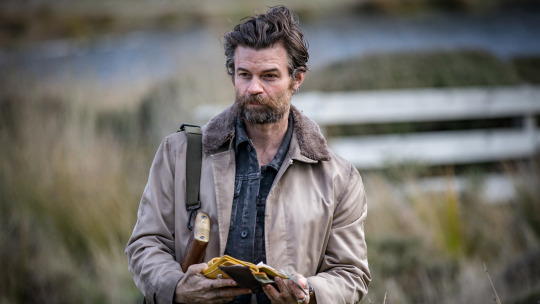
Noir Zealand Road Trip.
Breakout noir filmmaker James Ashcroft speaks to Letterboxd’s Indigenous editor Leo Koziol about his chilling new movie Coming Home in the Dark—and reveals how Blue Velvet, Straw Dogs and a bunch of cult New Zealand thrillers are all a part of his Life in Film.
“Many different types of feet walk across those lands, and the land in that sense is quite indifferent to who is on it. I like that duality. I like that sense of we’re never as safe as we would like to think.” —James Ashcroft
In his 1995 contribution to the British Film Institute’s Century of Cinema documentary series, Sam Neill described the unique sense of doom and darkness presented in films from Aotearoa New Zealand as the “Cinema of Unease”.
There couldn’t be a more appropriate addition to this canon than Māori filmmaker James Ashcroft’s startling debut Coming Home in the Dark, a brutal, atmospheric thriller about a family outing disrupted by an enigmatic madman who calls himself Mandrake, played in a revelatory performance by Canadian Kiwi actor Daniel Gillies (previously best known for CW vampire show The Originals, and as John Jameson in Spider-Man 2). Award-winning Māori actress Miriama McDowell is also in the small cast—her performance was explicitly singled out by Letterboxd in our Fantasia coverage.
Based on a short story by acclaimed New Zealand writer Owen Marshall, Ashcroft wrote the screenplay alongside longtime collaborator Eli Kent. It was a lean shoot, filmed over twenty days on a budget of just under US $1 million. The film is now in theaters, following its premiere at the Sundance Film Festival in January, where it made something of an impact.

Erik Thomson, Matthias Luafutu, Daniel Gillies and Miriama McDowell in a scene from ‘Coming Home in the Dark’.
Creasy007 described the film as “an exciting New Zealand thriller that grabs you tight and doesn’t let you go until the credits are rolling.” Jacob wrote: “One of the most punishingly brutal—both viscerally and emotionally—first viewings I’ve enjoyed in quite a while. Will probably follow James Ashcroft’s career to the gates of Hell after this one.”
Filmgoers weren’t the only ones impressed: Legendary Entertainment—the gargantuan production outfit behind the Dark Knight trilogy and Godzilla vs. Kong—promptly snapped up Ashcroft to direct their adaptation of Devolution, a high-concept novel by World War Z author Max Brooks about a small town facing a sasquatch invasion after a volcanic eruption. (“I find myself deep in Sasquatch mythology and learning a lot about volcanoes at the moment,” says the director, who is also writing the adaptation with Kent.)
Although Coming Home in the Dark marks his feature debut, Ashcroft has been working in the creative arts for many years as an actor and theater director, having previously run the Māori theater company Taki Rua. As he explains below, his film taps into notions of indigeneity in subtle, non-didactic ways. (Words in the Māori language are explained throughout the interview.)
Kia ora [hello] James. How did you come to be a filmmaker?
James Ashcroft: I’ve always loved film. I worked in video stores from the age thirteen to 21. That’s the only other ‘real job’ I’ve ever had. I trained as an actor, and worked as an actor for a long time. So I had always been playing around with film. My first student allowance that I was given when I went to university, I bought a camera, I didn’t pay for my rent. I bought a little handheld Sony camera. We used to make short films with my flatmates and friends, so I’ve always been dabbling and wanting to move into that.
After being predominantly involved with theater, I sort of reached my ceiling of what I wanted to do there. It was time to make a commitment and move over into pursuing and creating a slate of scripts, and making that first feature step into the industry. My main creative collaborator is Eli Kent, who I’ve been working with for seven years now. We’re on our ninth script, I think.
But Coming Home in the Dark, that was our first feature. It was the fifth script we had written, and that was very much about [it] being the first cab off the rank; about being able to find a work that would fit into the budget level that we could reasonably expect from the New Zealand Film Commission. I also wanted to make sure that piece was showing off my strengths and interests—being a character-focused, actor-focused piece—and something that we could execute within those constraints and still deliver truthfully and authentically to the story that we wanted to tell and showcase the areas of interest that I have as a filmmaker, which have always been genre.
Do you see the film more as a horror or a thriller?
We’ve never purported to be a horror. We think that the scenario is horrific, some of the events that happen are horrific, but this has always been a thriller for me and everyone involved. I think, sometimes, because of the premiere and the space that it was programmed in at Sundance, being in the Midnight section, there’s a sort of an association with horror or zany comedy. For us it’s more about, if anything, the psychological horror aspect of the story.
It’s violent in places, obviously, but there’s very little violence actually committed on screen. It’s the suggestion. The more terrifying thing is what exists in the viewer’s mind [rather] than necessarily what you can show on screen. My job as a storyteller is to provoke something that you can then flesh out and embellish more in your own psyche and emotions. It’s a great space, the psychological thriller, because it can deal with the dramatic as well as some of those more heightened, visceral moments that horror also can touch on.
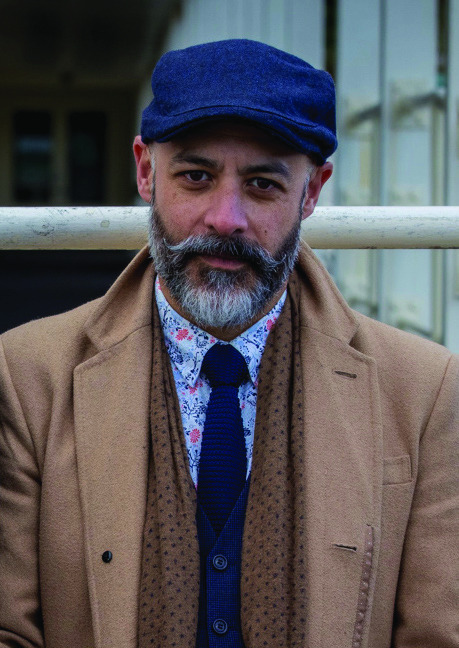
Director James Ashcroft. / Photo by Stan Alley
There’s a strong Māori cast in your film. Do you see yourself as a Māori filmmaker, or a filmmaker who is Maori?
Well, I’m a Māori everything. I’m a father, I’m a husband, I’m a friend. Everything that I do goes back to my DNA and my whakapapa [lineage]. So that’s just how I view my identity and my world. In terms of categorizing it, I don’t put anything in front of who I am as a storyteller. I’m an actor, I’m a director. I follow the stories that sort of haunt me more than anything. They all have something to do with my experience and how I see the world through my identity and my life—past, present and hopefully future.
In terms of the cast, Matthias Luafutu [who plays Mandrake’s sidekick Tubs], he’s Samoan. Miriama McDowell [who plays Jill, the mother of the family] is Māori. I knew that this story, in the way that I wanted to tell it, was always going to feature Māori in some respect. Both the ‘couples’, I suppose you could say—Hoaggie [Erik Thomson] and Jill on one side and Tubs and Mandrake on the other—I knew one of each would be of a [different] culture. So I knew I wanted to mirror that.
Probably more than anything, I knew if I had to choose one role that was going to be played by a Māori actor, it was definitely going to be Jill, because for me, Jill’s the character that really is the emotional core and our conduit to the story. Her relationship with the audience, we have to be with her—a strong middle-class working mother who has a sort of a joy-ness at the beginning of the film and then goes through quite a number of different emotions and realizations as it goes along.
Those are sometimes the roles that Māori actors, I often feel, don’t get a look at usually. That’s normally a different kind of actor that gets those kinds of roles. And then obviously when Miriama McDowell auditions for you it’s just a no-brainer, because she can play absolutely anything and everything. I have a strong relationship with Miriama from drama-school days, so I knew how to work with her on that.
Once you put a stake in the ground with her, then we go, right, so this is a biracial family, and her sons are going to be Māori and that’s where the Paratene brothers, who are brothers in real life, came into the room, and we were really taken with them immediately. We threw out a lot of their scripted dialogue in the end because what we are casting is that fundamental essence and energy that exists between two real brothers that just speaks volumes more than any dialogue that Eli and I could write.
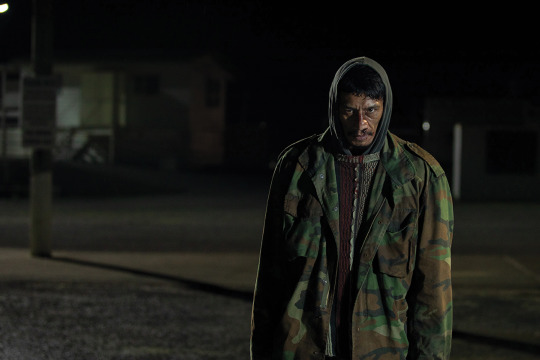
Matthias Luafutu as Tubs in ‘Coming Home in the Dark’.
What was your approach to the locations?
[The area we shot in] is very barren and quite harsh. I spent a lot of time there in my youth, and I find them quite beautiful places. They are very different kinds of landscapes than you normally see in films from our country. We didn’t want to go down The Lord of the Rings route of images from the whenua [land] that are lush mountains and greens and blues, even though that’s what Owen Marshall had written.
I was very keen, along with Matt Henley, our cinematographer, to find that duality in the landscape as well, because the whole story is about that duality in terms of people, in terms of this world, and that grey space. So that’s why we chose to film in those areas.
Regarding the scene where Tubs sprinkles himself with water: including this Māori spiritual element in the film created quite a contrast. That character had partaken in something quite evil, yet still follows a mundane cultural tradition around death. What are your thoughts on that?
Yeah. I’m not really interested in black-and-white characters of any kind. I want to find that grey space that allows them to live within more layers in the audience’s mind. So for me—and having family who have spent time in jail, or knowing people who have gone through systems like state-care institutions as well as moving on to prison—just because you have committed a crime or done something in one aspect of your life, that doesn’t mean that there isn’t room and there aren’t other aspects that inform your identity that you also carry.
It’s something that he’s adopted for whatever reasons to ground him in who he is. And they can sit side by side with being involved in some very horrendous actions, but also from Tubs’ perspective, these are actions which are committed in the name of survival. You start to get a sense Mandrake enjoys what he does rather than doing it for just a means to the end. So any moment that you can start to create a greater sense of duality in a person, I think that means that there’s an inner life to a world, to a character, that’s starting to be revealed. That’s an invitation for an audience to lean into that character.

Erik Thomson and Daniel Gillies in ‘Coming Home in the Dark’.
What is the film that made you want to get into filmmaking?
The biggest influence on me is probably David Lynch’s Blue Velvet. I saw that when I was ten years old. A babysitter, my cousin, rented it. It’s not a film that a ten-year-old should see, by the way. I was in Lower Hutt, there in my aunty’s house, and it was very cold, and there’s a roaring fire going. My cousin and her boyfriend were sitting on a couch behind me, and they started making out. I sort of knew something was going on behind me and not to look. So I was stuck between that and Dennis Hopper huffing nitrous, and this very strange, strange world opening up before me on the television.
I’ve had a few moments like that in my life [where a] film, as well as the circumstance, sort of changed how I view the world. I think something died that day, but obviously something was born. You can see what Lynch did in those early works, especially Blue Velvet. You don’t have to go too far beneath the surface of suburbia or what looks normal and nice and welcoming to find that there’s a complete flip-side. There’s that duality to our world, which we like to think might be far away, but it’s actually closer than you think.
That speaks to Coming Home in the Dark and why that short story resonated with me the first time I read it. Even in the most beautiful, scenically attractive places in our land, many different types of feet walk across those lands, and the land in that sense is quite indifferent to who is on it. I like that duality. I like that sense of we’re never as safe as we would like to think. Blue Velvet holds a special place in my heart.
What other films did you have in mind when forming your approach to Coming Home in the Dark?
Straw Dogs, the Peckinpah film. The original. Just because it plays in that grey space. Obviously times have changed, and you read the film in different ways now as you might have when it first came out. But that was a big influence because there was a moral ambiguity to that film; those lines of good and bad or black and white, they don’t apply anymore. It just becomes about what happens when people are put under extreme pressure and duress, and they abandon all sense of morals. The Offence by Sidney Lumet would be another one, very much drawn to that ’70s ilk of American and English filmmaking.
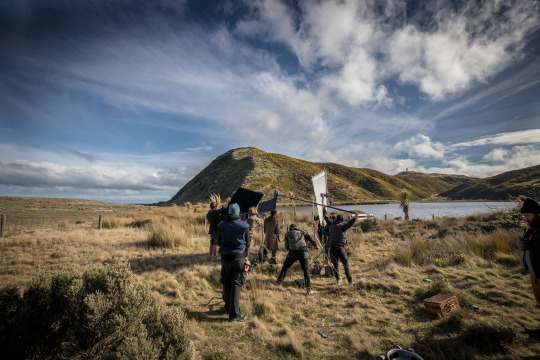
‘Coming Home in the Dark’ was filmed on location around the wider Wellington region of New Zealand.
Is there a New Zealand film that’s influenced you significantly?
There’s a few. I remember watching The Lost Tribe when it was on TV. That really scared me. I just remember the sounds of it. Mr. Wrong was a great ghost story. That stuck with me for a long time. The Scarecrow. Once I discovered Patu! [Merata Mita’s landmark documentary about the protests against the apartheid-era South African rugby tour of New Zealand in 1981], that sort of blew everything out of the water, because that was actually my first induction and education that this was something that even occurred. I think I saw that when I was about eighteen. That this was something that occurred in our history and had ramifications that were other than just a rugby game.
And Utu, every time I watch that, it doesn’t lose its resonance. I get something new from it every time. It’s a great amalgamation of identity, culture, of genre, and again, plays in that grey space of accountability. Utu still has that power for me. It’s one of those films, when it’s playing, I’ll end up sitting down and just being glued to the screen.
It’s a timeless classic. I will admit that when I watched your film, The Scarecrow did immediately come to mind, as did Garth Maxwell’s Jack Be Nimble.
Yeah. [Jack Be Nimble] was really frightening. Again, it was that clash of many different aspects. There was a psychosexual drama there. You’ve got this telekinetic mind control and that abuse and that hunkering down of an isolated family. There are plenty of New Zealand films that have explored a sort of similar territory. They’re all coming to me now.
Bad Blood has a great sense of atmosphere and photography and the use of soundscape to create that shocking sense of isolation and terror in these quick, fast, brutal moments, which then just sort of are left to ring in the air. But I love so much of New Zealand cinema, especially the stuff from the ’80s.
Kia ora [good luck], James.
Kia ora.
Related content
Leo’s Letterboxd list of Aotearoa New Zealand Scary-As Movies Adapted from Literature
Dave’s Cinema of Unease list
A Brutal Stillness: Gregory’s list of patient, meditative genre films
Sailordanae’s list of Indigenous directors of the Americas
Follow Leo on Letterboxd
‘Coming Home in the Dark’ is available now in select US theaters and on VOD in the US and New Zealand. All photographs by Stan Alley / GoldFish Creative. Comments have been edited for length and clarity.
#coming home in the dark#letterboxd#daniel gillies#james ashcroft#maori culture#maori movie#maori director#native director#indigenous film#miriama mcdowell#noir#new zealand noir#leo koziol#imagiNATIVE
3 notes
·
View notes